
No. 1 Institute for Aviation, Hospitality and Travel Tourism Industry | We Are the Best Academy in India for Air Hostess , Hotel Management, Cruise Ship and Travel Tourism


DUTIES AND RESPONSIBILITIES OF CABIN CREW
Cabin crew are also known as Flight Attendants, Air Hostess, Flight Stewards or even trolley dolly’s! They are primarily on board an aircraft for the safety and welfare of the passengers and secondly for their comfort. If there were no services of food or drink during a flight, there would still have to be a minimum presence of cabin crew for safety, which is a legal requirement.
Because cabin crew members are the face of the airline they are expected to excel in customer service and always remain friendly, approachable and enthusiastic with a good sense of self-presentation. The role of cabin crew can be physically demanding and you must be prepared to be flexible to work any day of the year. This does however give you a perfect opportunity to get away from the repetitiveness of a normal 9 to 5 job! Cabin Crew can encounter many different situations whilst working on board an aircraft and must be an excellent team player with the ability to work on their own initiative using quick thinking and organizational skills.
Main responsibilities
The cabin crew then has to greet the passengers as they board the aircraft, direct them to their seats and ensure that the entire luggage is safety stored away in the overhead cabins. Once all the passengers are on board then the cabin crew demonstrate the emergency procedures whilst the plane is preparing for take off.
During a flight the crew members assist passengers, make calls on behalf of the captain and serve food, drinks and sell duty free goods.
In case of emergencies, cabin crews are there to reassure passengers so that they follow the correct emergency procedures. The crew may have to deal with several emergencies such as cabin fires or first aid situations.
At the end of a flight cabin crew members are there to make sure that passengers disembark the aircraft safely. The crew members are then asked to complete a written report that records all details of the flight. For instance; duty free sales, food and drinks sales, any unusual incidents and customs and immigration documentation.
Typical work activities
Tasks may vary slightly depending on whether it is a short or long haul flight and the size of the team you are working in. However, they typically include:
- Attending a pre-flight briefing, during which air cabin crew are assigned their working positions for the upcoming flight (crew are also informed of flight details, the schedule and if there are passengers with any special requirements, such as diabetic passengers, passengers in wheelchairs or the number of infants on board);
- Carrying out pre-flight duties, including checking the safety equipment, ensuring the aircraft is clean and tidy, ensuring that information in the seat pockets is up to date and that all meals and stock are on board;
- Welcoming passengers on board and directing them to their seats;
- Informing passengers of the aircraft safety procedures and ensuring that all hand luggage is securely stored away;
- Checking all passenger seat belts and galleys are secure prior to rake-off;
- Making announcements on behalf of the pilot and answering passenger questions during the flight;
- Serving meals and refreshments to passengers;
- Selling duty-free goods and advising passengers of any allowance restrictions in force at their destination;
- Reassuring passengers and ensuring that they follow safety procedures correctly in emergency situations;
- Giving first aid to passengers where necessary;
- Ensuring passengers disembark safely at the end of a flight and checking that there is no luggage left in the overhead lockers;
- Completing paperwork, including writing a flight report.
Once Recruited As A Cabin Crew Member
Once you have been successfully accepted by an airline to work as a cabin crew member you will have to complete a mandatory 4-6 week training course, which is governed by the Civil Aviation Authority and the European Joint Aviation Authorities. This training course is called SEP (Safety & Emergency Procedures) the SEP training is paid for by the airline plus you will also get your first month’s wages. During this time you will be trained on:
- Aircraft Evacuation
- Ditching (landing on water)
- Decompression
- Fire Fighting
- Passenger Management
- Security Related Issues
- Extraordinary Situations
Some of this training can be conducted within different simulators to practice the drills and procedures needed to deal with different types of emergencies. Because this training is extremely expensive it is only offered to people recruited as cabin crew, however there are airline recognized training courses available, which would give you an excellent insight into what you can expect. For more information please see details of our Cabin Crew Training Programme. Once you have successfully completed the SEP training you will then be put on a probationary period from 3 to 6 months where your performance will be assessed by senior cabin crew and airline trainers. Also every cabin crew member has to undergo recurrent training every 12 months and be re-tested.
Responsibilities in details
Prior to each flight, flight attendants attend a safety briefing with the pilots and lead flight attendant. During this briefing they go over safety and emergency checklists, the locations and amounts of emergency equipment and other features specific to that aircraft type. Boarding particulars are verified, such as special needs passengers, small children traveling as unaccompanied or VIPs. Weather conditions are discussed including anticipated turbulence. Prior to each flight a safety check is conducted to ensure all equipment such as life vest, torches (flash light)_ _and firefighting equipment are on board, in the right quantity, and in proper condition and location. Any unserviceable or missing items must be reported and rectified prior to take off. They must monitor the cabin for any unusual smells or situations. They assist with the loading of carry on baggage, checking for weight, size and dangerous goods. They make sure those sitting in emergency exist rows are willing and able to assist in an evacuation and move those who are not willing or able out of the row into another seat. They then must do a safety demonstration or monitor passengers as they watch a safety video. They then must “secure the cabin” ensuring tray tables are stowed, seats are in their upright positions, armrests down and carry-ons stowed correctly and seat belts are fastened prior to takeoff. All the service between boarding and take-off is called Pre Take off Service.
Once up in the air, flight attendants will usually serve drinks and/or food to passengers. While performing customer service duties and when free, flight attendants must periodically conduct cabin checks and listen for any unusual noises or situations. Checks must also be done on the lavatory to ensure the smoke detector hasn’t been deactivated and to restock supplies as needed. Regular cockpit checks must be done to ensure the pilot’s health and safety. They must also respond to call lights dealing with special requests. During turbulence, flight attendants must ensure the cabin is secure. Prior to landing all loose items, trays and rubbish must be collected and secured along with service and galley equipment. All hot liquids must be disposed of. A final cabin check must then be completed prior to landing. It is vital that flight attendants remain aware as the majority of emergencies occur during takeoff. Upon landing, flight attendants must remain stationed at exits and monitor the airplane and cabin as passengers disembark the plane. They also assist any special needs passengers and small children off the airplane and escort children, while following the proper paperwork and ID process to escort them to the designated person picking them up.
Flight attendants are trained to deal with a wide variety of emergencies, and are trained in First Aid. Emergency training includes rejected Take Offs, emergency landings, cardiac and in-flight medical situations, smoke in the cabin, fires, depressurization, on-board births and deaths, dangerous goods and spills in the cabin, emergency evacuations, hijackings, water landings, and sea, forest, arctic, and desert survival skills.
Chief Purser
The Chief Purser (CP), Inflight Service Manager (ISM), Cabin Service Manager (CSM). The title associating with this crew member differs from airline to airline. These crew are mainly found on larger aircraft types and are in charge of the running of the cabin. They report when the cabin is secure for takeoff and landing, deliver on-board announcements, and any broken or missing emergency equipment items to the pilots after the preflight check. They generally operate the doors during routine flights as well as hold the manifest and account for all money and required paperwork and reports for each flight. 2-4 Senior Crew Members may also be on board the larger aircraft types. Chief Pursers are flight attendants who have been promoted through the ranks- Flight attendant → Senior crew member → Purser → Chief Purser. To reach this position the crew member must have had a mandatory amount of service years within the airline or airlines prior to changing airline. Further training is mandatory, and Chief Pursers typically earn a higher salary than flight attendants because of the added responsibility.
The Purser will, on board larger aircraft with multiple flight attendants, assist the Chief Purser and have similar roles and responsibilities. 2-4 Senior Crew Members may also be on board the larger aircraft types. Pursers are flight attendants or with similar job profile, typically with an airline for several years prior to application, and undergoes further training to become a purser, and normally earn a higher salary than flight attendants because of the added responsibility.
First Aider:
As a Job responsibility, a Cabin Crew should also be thorough in the following subjects for any medical emergency, which might arise once airborne:
(a) Physiology of flight including oxygen requirements and hypoxia;
(b) Medical emergencies in aviation including:
- Heart attacks;
- Stress reactions and allergic reactions;
- Air sickness;
- Hyperventilation;
- Gastro-intestinal disturbances;
- Emergency childbirth;
© Practical cardio – pulmonary resuscitation by each cabin crewmember having regard to the aero plane environment and using a specifically designed dummy;
(d) Basic first aid and survival training including care of:
- The unconscious;
- Wounds; and
- Fractures and soft tissue injuries;
(e) Travel health and hygiene including:
- The risk of contact with infectious diseases especially when operating into tropical and sub-tropical areas. Reporting of infectious diseases protection from infection and avoidance of water-borne and food-borne illness. Training shall include the means to reduce such risks;
- Hygiene on board;
- Death on board;
- Handling of clinical waste; and
- Alertness management, physiological effects of fatigue, sleep physiology, circadian rhythm and time zone changes;
(f) The use of appropriate aircrafts equipment including first aid kits, emergency medical kits, first aid oxygen and emergency medical equipment.
Isn’t that quiet a handful!
Leave a Reply Cancel reply
You must be logged in to post a comment.
Cabin Crew Meaning: What it Means to Work as a Flight Attendant
Working as a cabin crew is a dream job for many people. It’s seen as glamorous, exciting, and full of adventure. But what does it really mean to work as a cabin crew? What are the responsibilities of the role? And what are the challenges and rewards? In this article, we will explore the meaning of being a cabin crew and discuss what goes into the role.
Also Read: What is the Difference Between Cabin Crew and Flight Attendant?
Cabin crew are the flight attendants plus other roles that work on commercial airlines. They are responsible for the safety and comfort of the passengers during the flight. The cabin crew is made up of several different roles, including a purser, a cabin supervisor, and flight attendants. The other roles inside an aircraft include the pilots (captain and first officer) who work in the “Flight Deck”.
List of Roles of Crew inside an Aircraft
Pilot captain, pilot first officer, cabin crew supervisor, flight attendants / cabin crew members, what are the challenges of cabin crew, what are the benefits of a cabin crew, is an air hostess a cabin crew, is a flight steward a cabin crew, is a flight attendant a cabin crew, what are some of the duties of a cabin crew, what are the contributions of a cabin crew, what are some skills needed to be a cabin crew, what is the job outlook for cabin crew, what are some of the challenges of being a cabin crew, what does it mean to become a cabin crew, video: quick video definition of cabin crew meaning.
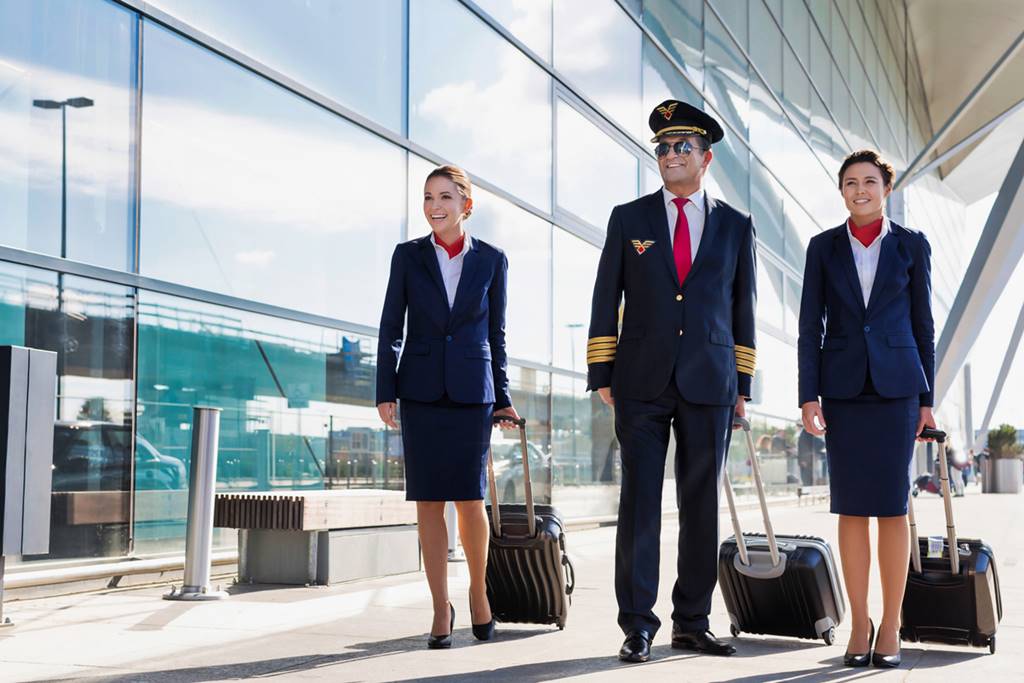
In case you are wondering what are the job positions of a crew inside an aircraft, please check out the details below:
- Flight Attendant Members
The captain is the most senior member of the cabin crew and is in charge of the entire aircraft.
A pilot captain is the most experienced and senior pilot in a cockpit crew. The captain is responsible for the safety and well-being of all passengers and crew onboard, as well as the plane itself.
The captain is also responsible for making all major decisions during a flight, including takeoff, landing, and any changes in route or altitude.
In order to become a pilot captain, one must have extensive experience flying different types of aircraft. They must also complete additional training on emergency procedures and weather patterns. While the role of pilot captain is demanding, it is also immensely rewarding, as it allows pilots to help ensure the safe travel of millions of people every year.
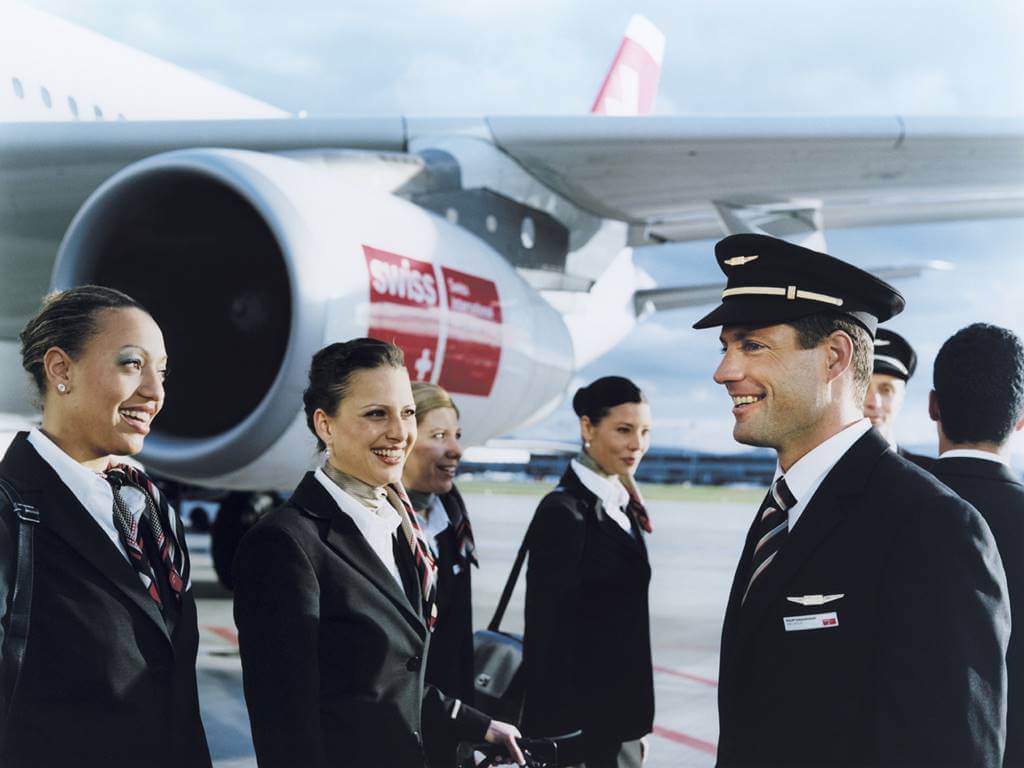
The first officer is the second in command and is responsible for assisting the captain with flying the plane and navigating.
The role of first officer on a commercial airliner is to help the captain fly the plane and take care of the passengers. The first officer is also known as the co-pilot. The first officer sits in the right seat, and the captain sits in the left seat.
The first officer is responsible for flying the airplane when the captain is not flying it. The first officer also helps with navigation, communications, and monitoring instruments.
During takeoff and landing, the first officer helps to control the speed of the airplane. The first officer also does most of the talking on the radio. In an emergency, the first officer takes over for the captain. The first officer must have a commercial pilot license and an instrument rating.
The first officer must also have experience flying multi-engine airplanes. Most first officers start out as flight instructors or charter pilots. Some first officers are also former military pilots.
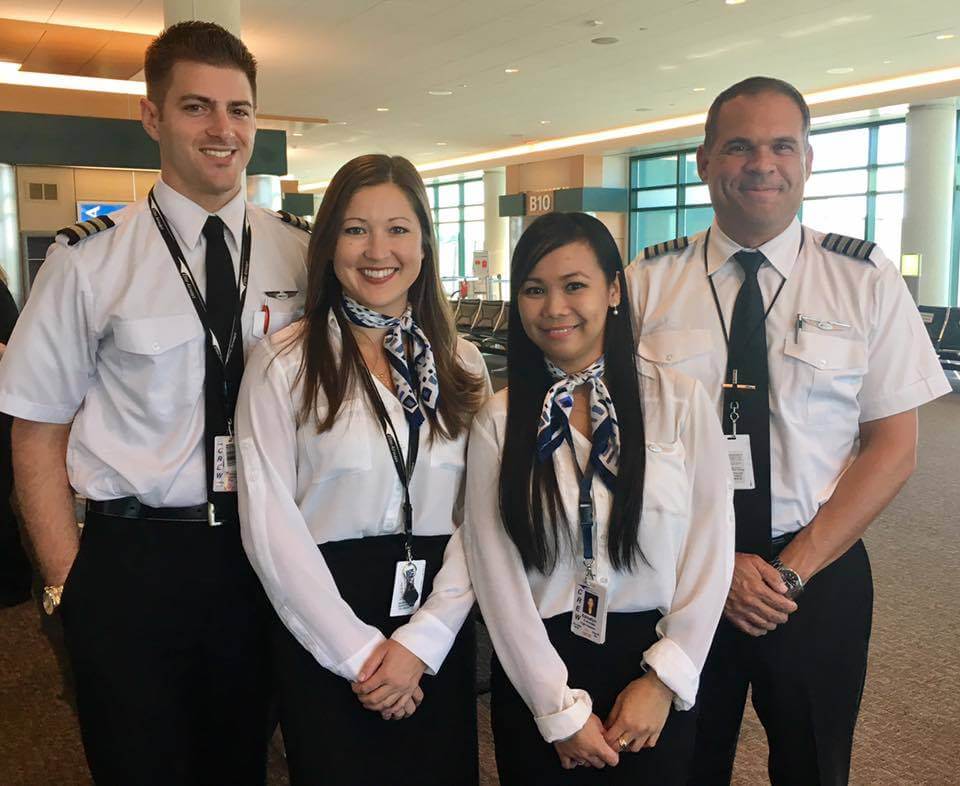
The purser is responsible for managing the cabin crew and passengers, as well as overseeing passenger safety and comfort.
The main role of the Purser is to manage the cabin crew and ensure the safety and security of the passengers. Pursers are also responsible for maintaining order in the cabin, dealing with customer queries and complaints, and providing first aid if necessary.
Pursers typically have a good working knowledge of the aircraft and its emergency procedures. As a result, they are often able to provide valuable assistance to the pilots in the event of an emergency.
Pursers play a vital role in ensuring the smooth running of any flight, and their experience and expertise are greatly valued by both passengers and crew alike.
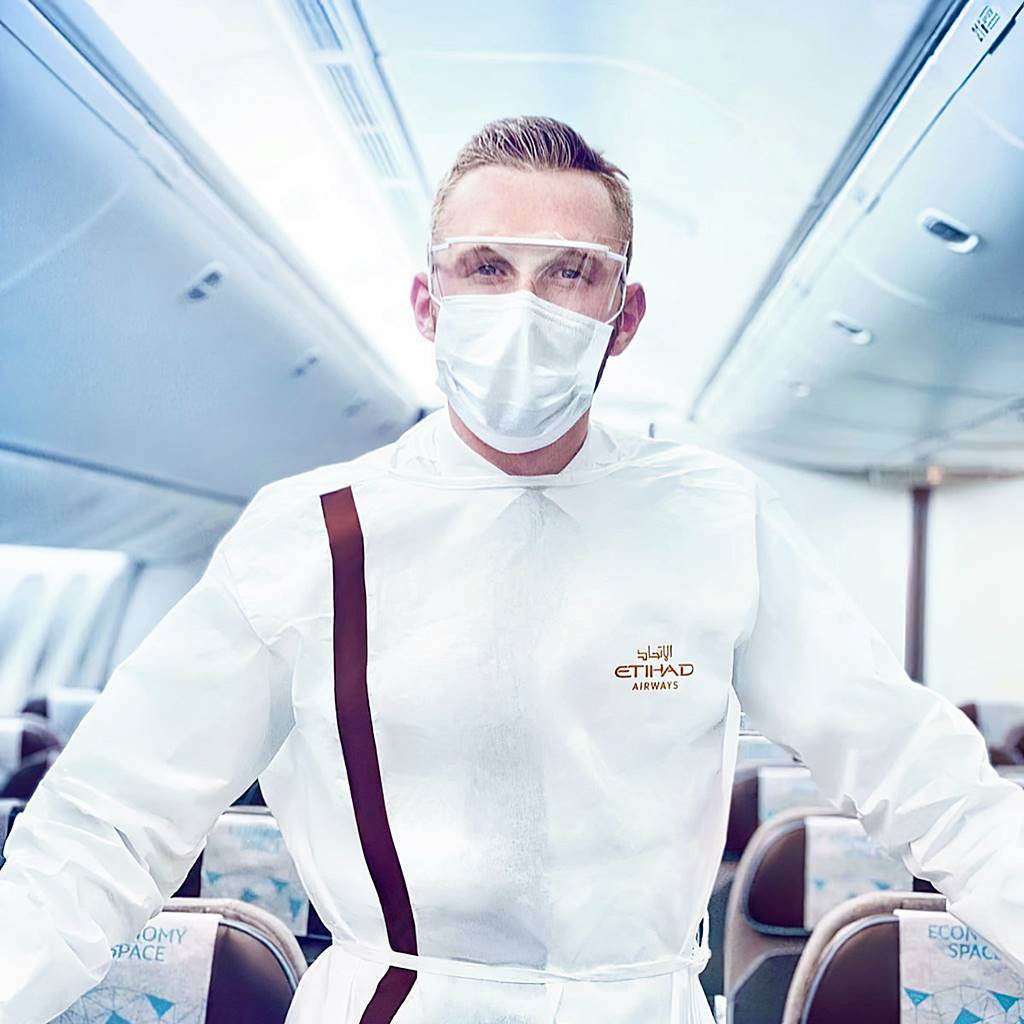
As a Cabin Crew Supervisor, you will be reporting to your Purser.
You will be responsible for the safety and comfort of passengers while onboard an aircraft and you will be supervising the flight attendants inside the plane. A cabin crew supervisor is divided according to the number of classes in the cabin. for large airlines, there is an economy class, business class, and first class. Ideally, there are at least 2 flight supervisors inside the plane.
In this role, you will work closely with the captain and other members of the flight crew to ensure that all safety procedures are followed and that passengers are comfortable and satisfied with the service.
You will also be responsible for maintaining order during the flight and dealing with any passenger concerns or issues.
To be successful in this role, you must have excellent customer service skills and leadership skills. You must be able to remain calm and professional in a fast-paced environment. Cabin Crew Supervisors typically have previous experience working as Flight Attendants or in customer service roles.
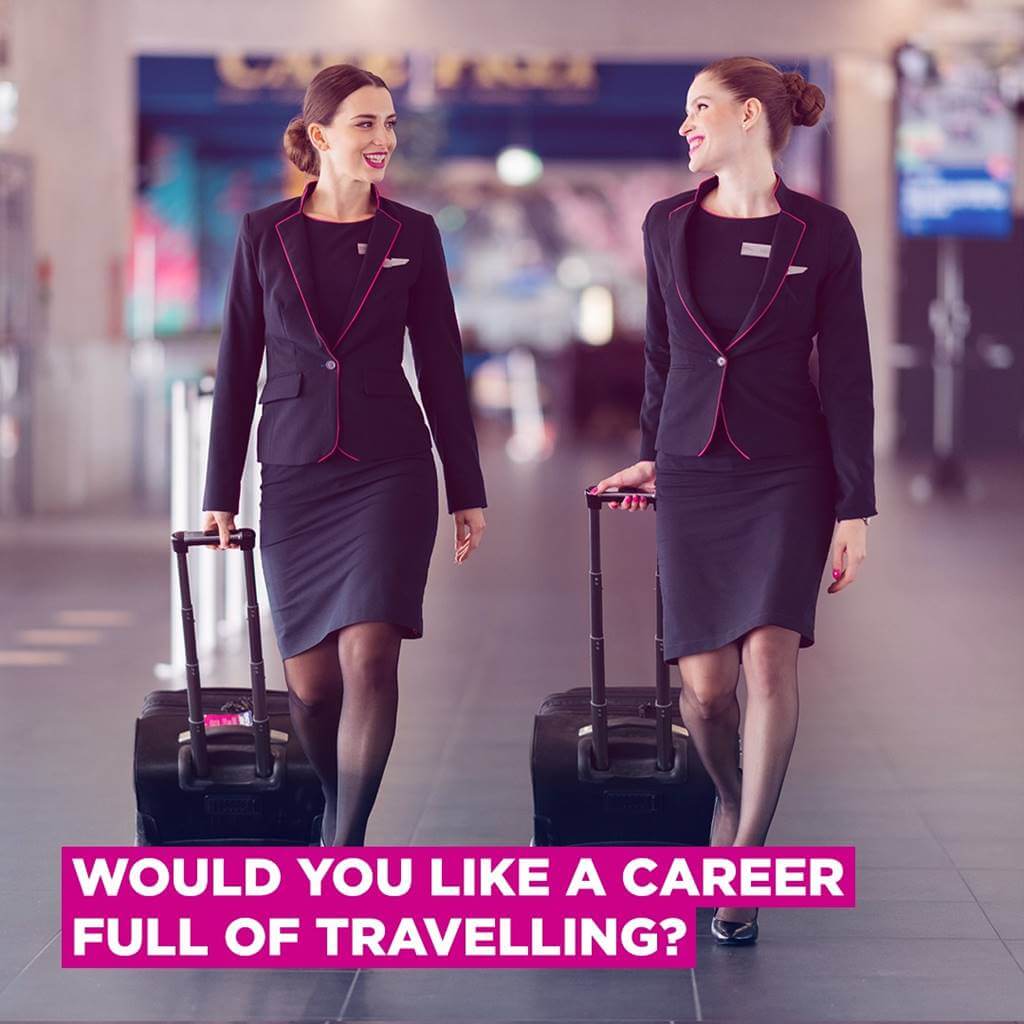
Flight attendants or cabin crew members are responsible for providing service to passengers and ensuring their safety during the flight. They are the main frontliners that directly deal with the number of passengers in the plane.
Flight attendants have many important responsibilities. They are responsible for the safety and well-being of all passengers on board the aircraft.
They provide customer service and ensure that the cabin is clean and comfortable. flight attendants also help to provide a sense of calm during emergency situations. As a result, the role of flight attendant is vital to the success of any flight.
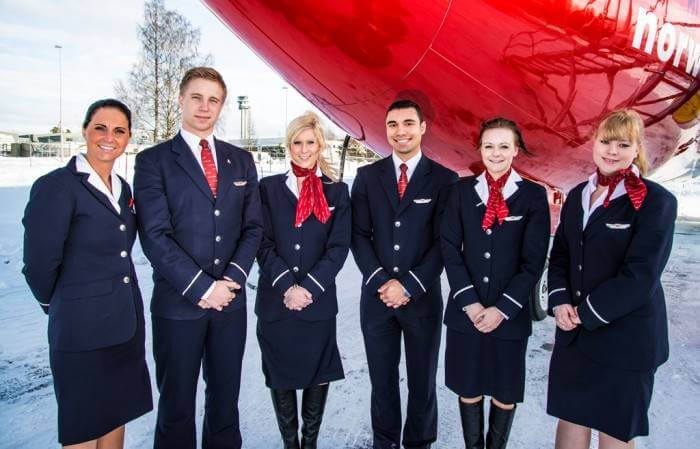
Cabin crew members have a demanding job that can be both mentally and physically challenging.
- Mental challenges include dealing with difficult passengers, managing customer expectations, and working in a high-pressure environment.
- Physical challenges include lifting heavy luggage, being on your feet for long periods of time, and exposure to infectious diseases.
- Cabin crew members must also be able to deal with the stress of flying, as well as the physical demands of the job.
- In addition, cabin crew members are often required to work irregular hours, including weekends and holidays. This can make it difficult to maintain a healthy work-life balance.
Despite these challenges, many people find working as cabin crew to be a rewarding and enjoyable experience.
Cabin crew members enjoy a number of benefits, including free or discounted travel, hotel stays and layovers , and meals.
They also receive training in customer service, safety, and first aid. Cabin crew members often have the opportunity to meet people from all over the world and experience different cultures.
The job can also be very exciting and fast-paced, which can make it enjoyable for those who thrive in such an environment.
The term “cabin crew” encompasses all of the air staff who work in the passenger cabin of an aircraft, including flight attendants, pursers, and any other customer service personnel. The term “air hostess” is no longer used in the United States, as it is considered outdated and sexist. So to answer, yes, air hostess
A flight steward is a member of the cabin crew on an aircraft. The primary responsibility of a flight steward is to ensure the safety and comfort of passengers during the flight.
Flight stewards also provide customer service, such as serving food and drinks, and answering passenger questions. They may also help with luggage if necessary. So to answer, yes, a flight steward is considered part of the cabin crew.
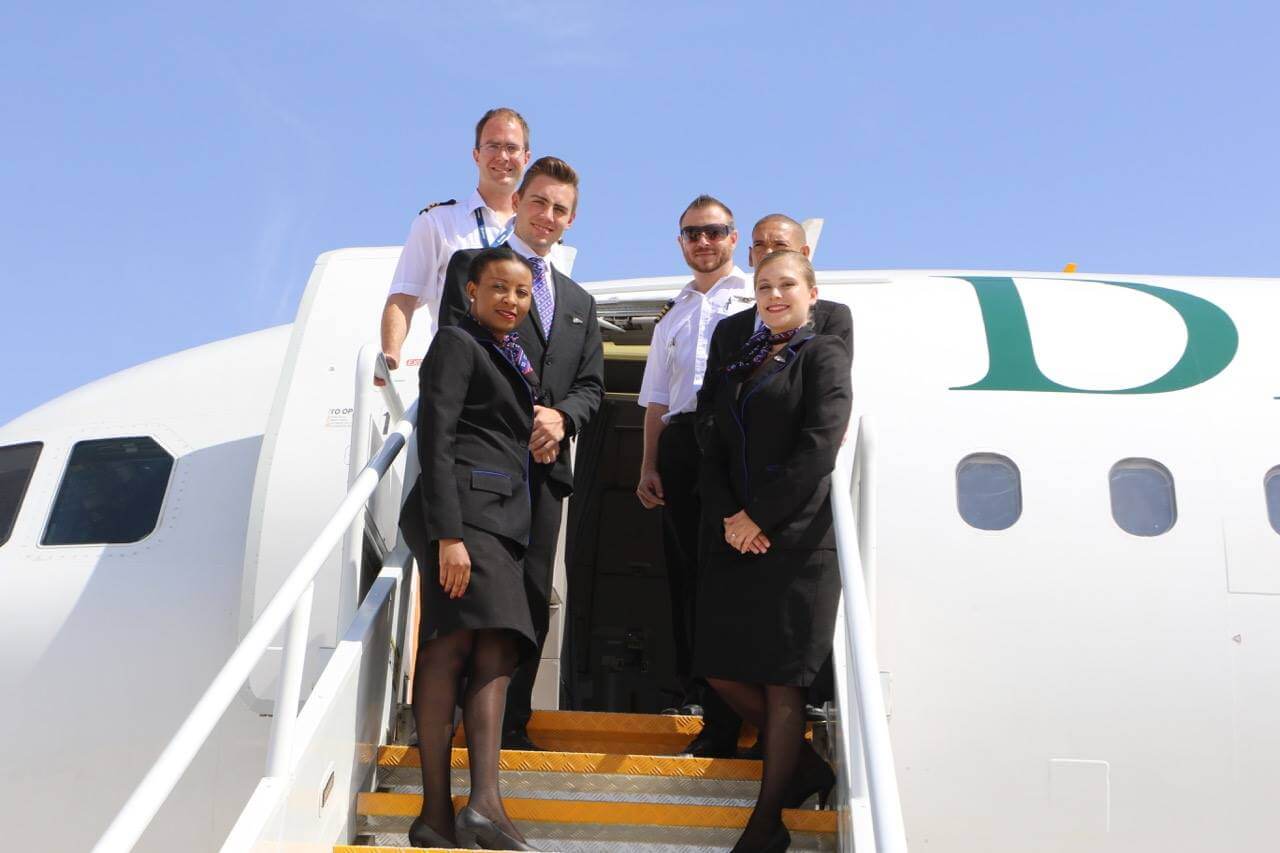
A flight attendant is a member of the cabin crew on an aircraft. The primary responsibility of a flight attendant is to ensure the safety and comfort of passengers during the flight.
Flight attendants also provide customer service, such as serving food and drinks, and answering passenger questions. They may also help with luggage if necessary. So to answer, yes, a flight attendant is considered part of the cabin crew.
The duties of a cabin crew include ensuring the safety and comfort of passengers, providing customer service, and helping with luggage IF necessary. Cabin crew members may also be responsible for conducting security checks, serving food and drinks, and answering passenger questions.
- Ensure the SAFETY and SECURITY of the passengers in the plane
- Greeting passengers as they board the aircraft
- Checking passenger tickets and passports
- Assisting passengers with their luggage (if necessary)
- Showing passengers to their seats
- Preparing the aircraft for takeoff and landing
- Serving food and drinks to passengers during the flight
- Answering passenger questions about the flight or destination
- Dealing with any passenger complaints
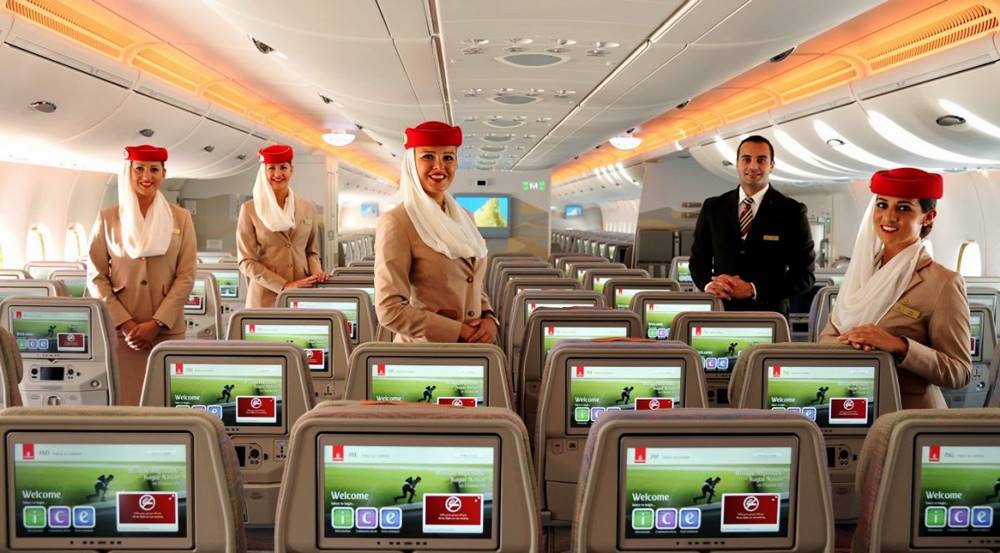
The main contribution of a cabin crew is to ensure the safety and security of the passengers on board the aircraft. They are also responsible for comfort and provide customer service to passengers during the flight.Tthey may also be required to perform certain administrative tasks such as preparing passenger manifests and handling customer complaints.
Some of the skills needed to be a cabin crew include excellent customer service skills, ability to work in a fast-paced environment, physical stamina, and good communication skills.
It is also important for cabin crew members to be able to remain calm under pressure and have a positive attitude.
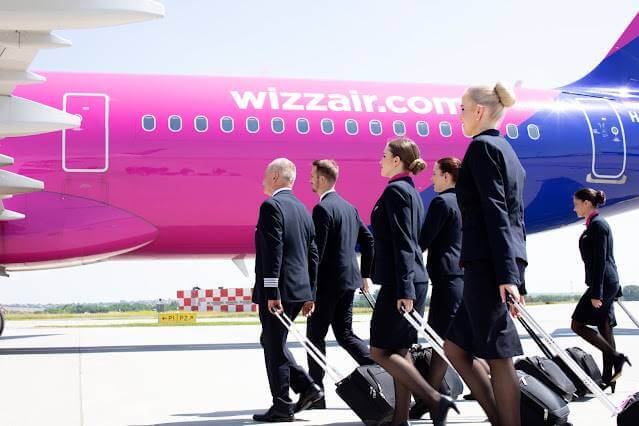
The job outlook for cabin crew is expected to grow at a rate of 5% from 2019-2029, which is faster than the average for all occupations. The growth of the airline industry and an increase in air travel will lead to more job opportunities for cabin crew members.
Some of the challenges of being a cabin crew include long hours, irregular work schedules, and working in close quarters with other people.
Cabin crew members also have to deal with disruptive passengers and handle customer complaints.
Another challenge of the job is that it can be physically demanding, as you are required to be on your feet for long periods of time and lift heavy luggage.
Becoming a cabin crew member means that you are taking on a very important and responsible role. You will be responsible for the safety and comfort of passengers during their flight. You will also provide customer service, such as serving food and drinks, and answering passenger questions. You may also be required to help with luggage if necessary.
Here’s a quick video uploaded online on the meaning of the word cabin crew:
Becoming a cabin crew member is a very important and responsible role. We hope that you get a better understanding and idea of the meaning of this job position through this article.
So if you are looking for an exciting and challenging career, becoming a cabin crew member may be the perfect choice for you.

Cabin Crew Meaning: Exploring the Definition and Importance
- Updated on June 27, 2024
- 5 minutes read
- No Comments
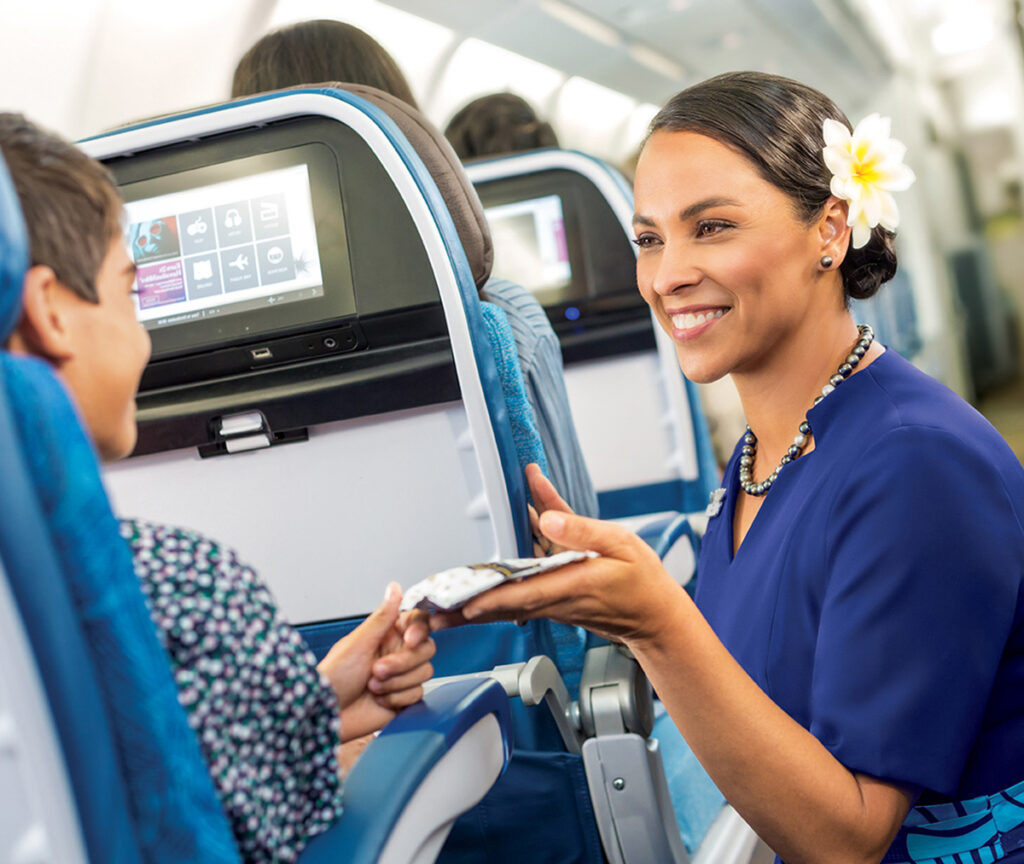
When you step onto an airplane, the first faces you see are those of the cabin crew . But who are they exactly, and what roles do they play? This article unveils the cabin crew meaning, diving deep into the roles and responsibilities of these professionals who are the heart and soul of every flight.
Cabin Crew Definition
The cabin crew is a team of professionals who work tirelessly to ensure the safety and comfort of passengers aboard commercial flights. They are the primary contact point between the airline and its passengers, representing the airline’s brand and values.
Related: 13 Essential Qualifications for Cabin Crew
Roles and Responsibilities
While many passengers associate cabin crew with serving meals and drinks, their responsibilities extend far beyond these tasks:
Safety Protectors
The cabin crew’s primary responsibility is to ensure passenger safety. They are trained to handle a variety of emergency situations, from sudden turbulence to full-scale evacuations. Before each flight, they guide passengers through safety procedures, a critical step in preparing everyone on board for potential emergencies.
Customer Service Providers
Cabin crew members are also responsible for providing a comfortable and enjoyable flight experience. They assist passengers with their needs, answer their queries, and manage any onboard issues, such as unruly passengers or medical emergencies.
Brand Ambassadors
As the most visible representatives of their airline, cabin crew members play a crucial role in shaping the company’s image. Their professionalism, demeanour, and service quality can significantly influence passengers’ perception of the airline.
Training and Qualifications
Becoming a cabin crew member requires rigorous training and a specific set of skills:
Technical Training
Prospective cabin crew members undergo extensive training programs that cover a range of topics, including first aid, firefighting, emergency procedures, and survival skills. In the United States, for instance, flight attendants are required to earn a Certificate of Demonstrated Proficiency from the Federal Aviation Administration (FAA).
Customer Service Training
They also receive training in customer service and public relations to ensure they can provide the highest level of service to passengers.
Personal Qualities
In addition to technical skills, cabin crew members must possess certain personal qualities. They need to be patient, empathetic, and have excellent communication skills. They must be able to work as part of a team, often in confined spaces and under challenging conditions.
The Significance of Cabin Crew in the Aviation Industry
The role of the cabin crew is vital in the aviation industry. They ensure that safety regulations are adhered to and provide a high level of customer service. Their work significantly contributes to the overall flight experience, which can influence a passenger’s choice to fly with the same airline again.
The cabin crew meaning extends far beyond just service providers; they are safety protectors, customer service specialists, and brand ambassadors. The next time you board a flight, remember that the cabin crew is there to ensure your journey is safe, comfortable, and enjoyable. Their role is multifaceted and crucial to every flight’s success, making them an indispensable part of the aviation industry.
Frequently Asked Questions
Are “cabin crew” and “air hostess” the same.
Yes, an air hostess is a term often used to refer to a female member of the cabin crew. However, the term “cabin crew” is more inclusive, as it covers both male and female staff.
What is the primary role of the cabin crew?
The primary role of the cabin crew is to ensure the safety and comfort of passengers on a flight. They handle emergency situations, guide passengers through safety procedures, and provide excellent customer service.
What does “cabin crew” mean?
“Cabin crew” refers to a team of professionals working on a flight to ensure passenger safety and comfort. They are the main point of contact between the airline and its passengers, representing the airline’s brand and values.
What kind of training do cabin crew members undergo?
Cabin crew members undergo extensive training that includes emergency procedures, first aid, firefighting, and survival skills. They also receive customer service training to handle passenger needs effectively.
Are cabin crew members only responsible for serving meals and drinks?
No, cabin crew responsibilities go far beyond serving meals and drinks. They ensure passenger safety, manage emergency situations, assist with passenger needs, and maintain the airline’s image through professional conduct.
How do cabin crew members ensure passenger safety?
Cabin crew members ensure passenger safety by conducting safety demonstrations, managing emergency situations, and performing regular checks throughout the flight. They are trained to handle various emergencies, including turbulence and evacuations.
What personal qualities are important for cabin crew members?
Important personal qualities for cabin crew members include patience, empathy, excellent communication skills, and the ability to work well in a team. They must handle challenging situations calmly and professionally.
How do cabin crew members contribute to the airline’s brand?
Cabin crew members contribute to the airline’s brand by providing high-quality service, maintaining a professional demeanor, and ensuring a positive flight experience for passengers. Their interactions can significantly influence passengers’ perceptions of the airline.
What certification do flight attendants in the United States need?
In the United States, flight attendants are required to earn a Certificate of Demonstrated Proficiency from the Federal Aviation Administration (FAA), which ensures they meet specific safety and operational standards.
Why is customer service training important for cabin crew members?
Customer service training is important for cabin crew members because it equips them with the skills to handle passenger requests, manage difficult situations, and ensure a pleasant flight experience for everyone on board.
How does the cabin crew impact the overall flight experience?
The cabin crew impacts the overall flight experience by ensuring safety, providing excellent customer service, and creating a positive environment. Their professionalism and care can influence passengers’ decisions to fly with the same airline again.
What are some emergency situations cabin crew are trained to handle?
Cabin crew are trained to handle a variety of emergency situations, including medical emergencies, sudden turbulence, fire outbreaks, and full-scale evacuations. They are prepared to act quickly and efficiently to ensure passenger safety.
Why is the role of the cabin crew significant in the aviation industry?
The role of the cabin crew is significant in the aviation industry because they ensure safety regulations are followed, provide high-level customer service, and enhance the overall flight experience. Their work is crucial for the smooth operation of flights and passenger satisfaction.
How do cabin crew members assist passengers with their needs?
Cabin crew members assist passengers with their needs by answering questions , helping with seating and luggage , providing information, and addressing any issues that arise during the flight, such as dealing with unruly passengers or medical emergencies.
What makes a good cabin crew member?
A good cabin crew member is patient, empathetic, a good communicator, and able to work well under pressure. They must be dedicated to ensuring passenger safety and comfort, and able to handle various challenges during a flight.
How can passengers support cabin crew members during a flight?
Passengers can support cabin crew members by following safety instructions, being courteous, and understanding that crew members are there to ensure everyone’s safety and comfort. Cooperation and respect go a long way in making the flight pleasant for everyone.
Leave a Comment Cancel Reply
You must be logged in to post a comment.
Related Posts
Can flight attendants land a plane here’s the truth.
- August 23, 2024
How Do Cabin Crew Shifts Work? The Truth About Life in the Sky
- August 21, 2024
- 4 minutes read
Age Is Just a Number! How to Start a Cabin Crew Career at 45
Are cabin crew medically trained here’s what you should know.
- 3 minutes read
The Secret Language of Cabin Crew: What Those Codes Really Mean
What cabin crew avoid eating on planes – and why you should too.
- August 20, 2024
The Dark Side of Cabin Crew Life: 10 Challenges You Never Knew About
9 unspoken rules every flight attendant knows (but won’t tell you), forgot password.
Roles and Responsibilities of Cabin Crew: Insights into Modern Aviation

The cabin crew is mainly tasked with the responsibilities of maintaining the harmonious and unhindered flow of the flight-journey, starting from the moment of boarding, till the moment passengers deboard their flight. Roles and responsibilities of cabin crew are diverse. Crew members must be equipped with excellent communication and interpersonal skills. The vital role of cabin crew members is to maintain safety, positivity, calmness and security of the flight journey, through a vibrant display of professionalism, elegance, boldness and mindful assessment. Being an integral part of the airline's functioning process, multiple duties are assigned and cabin crew responsibilities become diverse.
These include:
- Assisting passengers
- Preparing the pre-flight procedures
- Mandatory safety presentations
- Maintaining safety/security during flights
- Providing hospitality services
- Maintaining communication between the flight deck and passengers,
- Rendering post-flight duties
- Clarifying the specifications of every safety-equipment
Here we narrate the responsibilities of cabin crew, their priorities, relevance, cabin crew job description and more.
What are the Duties and Responsibilities of Cabin Crew?
- The crew needs to make sure that all necessary instructions are fluently and comprehensively communicated right before take-off.
- In any case of misunderstanding or delayed flight-intervals, the crew members must be well-adept at managing and neutralizing (uprising/heated) situations.
- Crew members must remain composed, calm and diligent throughout the entire flight-journey.
- The duties of cabin crew (fundamentally) cater towards hospitality services. Momentary serving of water, beverages, food and refreshments is a vital part of their role.
- Crew members are also tasked with the responsibility of maintaining a comfortable environment, both for the passengers and staff members, by keeping the environment clean, removing trash from the aisle and maintaining a professional (attractive) appearance.
Safety Responsibilities
The primary responsibility is to maintain safety and comfort for everyone.
- As passengers start boarding the plane, crew members must greet and welcome passengers to usher a homely and positive feeling.
- Right before take-off they are required to communicate the entire safety protocol of the journey and explain how to operate the available safety equipment.
- The cabin crew must make sure everyone is seated with their seatbelts on and that electronic devices are turned off.
- As the journey proceeds, flight attendants are required to fulfill the needs of customers, clarify doubts, boost morale, provide beverages, refreshments, food (when ordered)
- In case of any conflict, the crew members should resolve conflicts in a peaceful and negotiated manner.
- The emergency procedures must be comprehensively described to passengers, simultaneously maintaining a normalcy in their tone.
Cabin Maintenance and Hygiene
Maintenance of hygiene is essential for both the staff members and the passengers. The cabin crew must be regular in retrieving trash from the passenger's seats and aisle. The garbage collecting cart is expected to be used a few times to ensure no litter in the environment and to maintain the clean state of the plane's interior.
Crisis Management and Security Protocols
A training program is conducted for new recruits. These programmes are integrated/structured mainly to brief the entire protocol, with the duties of maintaining safety and security during flight, providing customer and hospitality services, cabin management, maintaining cleanliness of the environment, enforcing rules/regulations, resolving conflict (and other related issues), anticipating passenger preferences and fulfilling their needs as required.
Communication and Coordination Skills
To enhance their skills in communication, coordination and management, they undergo Crew Resource Management (CRM) training programmes. This altogether boosts morale and unites the crew as a tight-knit collective, whose efficiency reaches its maximum extents when working together. There are special simulated drills for the crew members, wherein their response mechanisms are put to test and simultaneously improved.
Crew members must be well-adept at countering various types of situations. Evacuations and other related emergencies must be dealt with a calm and composed mind, altogether maintaining the high spirits of other crew members too. One must be exceptionally skilled in communication and management. Even private corporations in the aviation industry seek out experienced cabin crew members to hire, for their in-flight staff. So, a cabin crew becomes instrumental in shaping the unhindered flight-journeys of airlines in the aviation industry.
1 What training do cabin crew members undergo to handle emergency situations?
Cabin crew members get trained for specific emergency procedures, which include evacuation drives, fire emergencies, water landings, medical emergencies and security threats. Candidates are trained on how to assess these situations, improve analytical skills, enhance decision-making processes and maintain safety/harmony at all times.
2 What qualifications are required to become a cabin crew member?
To become a cabin crew member, one must have an educational qualification of at least 10 + 2 (matriculation + intermediate), High school diploma. Some airlines tend to prefer candidates holding bachelor degrees or educational degrees in hospitality, tourism and similar fields. Usually candidates aged between 18-27 are preferred, although some airlines do not maintain strict policies regarding age-limits.
3 What career opportunities are available for cabin crew members beyond their initial roles?
A path of diversified work-profiles open up for cabin crew members, ones they transcend the limits of their previously assigned roles. For instance, members can transition into the roles of being instructors, luxury hotel executives, receptionists in top MNCs etc.
4 What steps can aspiring cabin crew members take to prepare for a career in aviation?
Aspiring cabin crew members can further research about the industry to learn newer things, about innovations that are taking place and opportunities that surface. One may consider indulging in cabin crew training programmes and also practice maintaining a professional appearance.
5 How do cabin crew members handle challenging situations or conflicts among passengers?
Cabin crew members must be patient and remain composed throughout every conflicted situation. Members should be able to assess the situation, document whatever's necessary, maintain non-confrontational and non-provocative tones in their communication, offer instant solutions and (if needed) seek assistance from the captain or colleagues, including senior crew members.

Frankfinn receives the Award for the "Best Aviation Training Institute- 2021

FRANKFINN GROUP
Corporate office.
Best Building, 'A' Wing, 5th Floor, S.V. Road, Opposite Andheri Railway Station, Andheri(W), Mumbai 400058
REGISTERED OFFICE
201, Suneja Tower - 2, District Centre, Janakpuri, New Delhi-110058
SIGN UP FOR OUR NEWSLETTER
- Graduate Course
Investment approx ₹ 75 Lacs – ₹ 1.25 Crores (Depending on Center Size and City)* Minimum investment required ₹1Cr* -->
- Rosen Aviation
- What Are the Positions of a Cabin C ...
What Are the Positions of a Cabin Crew?

No commercial flight can be successful without a cabin crew. These are the people who greet you when you board the aircraft, provide you with safety instructions, serve food and beverages and ensure the safety and comfort of passengers from takeoff to landing.
There are also members of the cabin crew you may never see. They include the captain—the main pilot of the flight and the top leader of the flight crew, and the first officer—the co-pilot seated next to the captain.
Although each member of the cabin crew has their own set of duties, their collective responsibility is to work as a team to create a pleasant and positive in-flight experience for all passengers.
If you’re interested in pursing a career in commercial aviation or are simply curious as to what each member of the cabin crew does, there’s a boundless amount of resource to explore, including airline websites, job boards, YouTube channels on aviation and, of course, the cabin crew themselves.
Flight Crew Positions
The flight crew consists of a team of individuals responsible for controlling the aircraft and making sure it’s operated safely.
A commercial flight captain is the most experienced and highest-ranking pilot on board a commercial aircraft. The captain is responsible for the safety of all passengers and crew members, as well as the successful completion of the flight.
They’re responsible for ensuring all safety protocols are followed, the aircraft is properly maintained, and all passengers and crew members are comfortable and secure during the flight. The captain also has ultimate authority over any decisions made during the flight, including any changes in course or altitude.
First Officer
The first officer is the second in command of the aircraft. They are responsible for assisting the captain in all aspects of the flight, including pre-flight preparations, navigation, communication and monitoring of aircraft systems.
The first officer is also responsible for ensuring that all safety procedures are followed and that passengers are comfortable during the flight.
Flight Engineer
This position is rare in modern times thanks to the adoption of a variety of advanced diagnostics and automation. Back when they were a commonplace fixture on commercial carrier flights, the first engineer was in charge of ensuring the safe and efficient operation of the aircraft. This included monitoring and maintaining all systems, such as engines, hydraulics and avionics. The first engineer was also responsible for troubleshooting any issues that arose during the flight.
Cabin Positions
The cabin crew are the personnel who provide customer service and safety on board an aircraft.
A purser is a seasoned crew member who is responsible for the overall operation of the cabin crew. Their main responsibilities include overseeing other flight attendants, handling flight paperwork and ensuring all passengers are comfortable and safe during the flight, as well as managing any issues that may arise.
The purser doesn’t have to be the seniormost member of the cabin crew, but they’re usually required to have at least five years of flight attendant experience.
Flight Attendant
Flight attendants are responsible for the safety and comfort of passengers during their flight. They greet passengers as they board the plane and help them find their seats.
During the flight, they provide food and drinks, answer questions and help with any issues that may arise. They also demonstrate safety procedures to passengers during the flight.
In addition to these duties, they may also assist with luggage storage and retrieval, provide first aid if needed and help with any other passenger needs that may arise during the flight.
Inflight Chef
As the name implies, inflight chefs prepare and cook signature dishes on board an aircraft using high-quality ingredients.
The experience is exclusive to first class passengers as well as private and business jet fliers who expect to indulge in delicious and fresh food instead of the usual reheated meals catered by restaurants and food services.
Inflight chefs typically work in the galley area of an aircraft, where they prepare meals for passengers according to their dietary requirements. In addition to preparing meals, inflight chefs may also be responsible for cleaning up after passengers have finished eating.
Create a One-of-a-Kind Inflight Experience with Innovative Cabin Displays and IFE from Rosen Aviation
At Rosen Aviation , we’re committed to designing and designing and manufacturing cutting-edge cabin displays and IFE systems. Our products are designed to create an immersive inflight experience for both passengers and crew members.
If you’re curious how our solutions can elevate your aircraft to the next level, call us at 1-888-668-4955. We’d be happy to discuss your specific needs and provide tailored solutions.
- Apply for Opening:
Please submit your resume and other pertinent documents (i.e. cover letter, work samples, & certifications).
- Name * First Last
- Resume * Drop files here or Accepted file types: doc, docx, rtf, pdf.
- Name This field is for validation purposes and should be left unchanged.
- Capabilities
- Sustainability
- Infographics
- White Papers
- RAeS Members
- Directory login
- Interactive Careers Roadmap
- Career Advisors
- Undergraduate
- Apprenticeships
- Employment in Aviation
- Bursaries and Scholarships
- Specialist Roles
- Helicopters
- Flight Simulation
- Environment
- Licensed Engineers
- Training and Apprenticeships
- Military Pilot
- Helicopter Pilot
- Airport Management
- Air Traffic Control
- Flight/Fleet Operations & Flight Planning
- Ground Services Crew
- Flight Dispatchers
- Human Factors
- Careers Service
- Aerostories
- alta mentoring
- Online School Resources
- Online application forms
- Soft Skills
- How to write a winning CV
- Writing compelling covering letters
- Creating a LinkedIn Profile
- Assessment Centres
- Networking 101
- Downloads, Listings & Webinars
- Careers Videos
What does a Cabin Crew Member Do?
As a cabin crew member, you’ll provide excellent customer service to passengers while ensuring their comfort and safety throughout the flight. Serving refreshments and meals and selling gifts and duty-free items are all part of the job.
Cabin crew are highly trained to deal with security and emergency situations and can administer first aid to passengers.
As Cabin Crew member, it’s also your responsibility to ensure that all emergency equipment is in working order prior to take-off and that there are enough supplies on board. You’ll help passengers board the plane and give a demonstration of safety procedures and equipment.
What are the Key Responsibilities of Cabin Crew members?
Working as Cabin Crew for a major airline provides plenty of contact with people as well as opportunities to travel. The air cabin crew of a commercial airline share responsibility for the safety and comfort of its passengers.
Your duties will include:
- greeting passengers as they board and exit the plane
- showing passengers to their seats and providing special attention to certain passengers, such as the elderly or disabled
- serving meals and refreshments
- checking the condition and provision of emergency equipment and information for passengers
- demonstrating emergency equipment and safety procedures
- administering first aid
- dealing with emergencies
- supplying passengers with newspapers, magazines and in-flight entertainment
- selling duty-free commercial goods and pursuing sales targets
- producing written flight reports after completing a journey.
The role can be physically and emotionally demanding and there is a high degree of responsibility involved. Cabin crew are expected to deal with all passengers diplomatically – even when feeling the effects of travelling through time zones and spending extended periods of time on their feet.

What Qualifications & Skills Do I need to Become Cabin Crew?
A university degree is not usually required to work as airline cabin crew. However, a bachelor’s degree in travel, tourism, hospitality management, leisure or languages may be helpful to help you stand out from the crowd. A nursing degree could also be relevant.
Interpersonal skills and good health and fitness are normally more important than academic qualifications, although many airlines do ask for at least five GCSEs (including English and maths) at grade 4 (C) or above.
For international travel, you’ll need a valid passport. You will also need to pass a Disclosure and Barring Service (DBS) check.
Work experience with the public in a customer service role will help demonstrate that you have the necessary skills. Experience gained within nursing, catering, or the hotel, tourism or travel trades is likely to be an advantage.
Most airlines require cabin staff to complete a training course covering areas such as safety procedures, legal & immigration issues and customer service upon entry to the airline.
Some of the most important skills you need to have in this role include: excellent communication skills, diplomacy and tact as well as the ability to remain calm in emergencies or when dealing with difficult passengers.
What’s the Career Path for Cabin Crew?
Promotion for cabin crew is based on experience and performance. From the role of cabin crew member, it’s possible to progress to the position of purser or chief purser – which is the title given to the chief flight attendant.
Pursers have the same responsibilities as the general cabin crew but are also given the management responsibilities of a certain cabin, such as first class or business class.
As purser, you’ll ensure that all crew within your cabin deliver the highest level of customer service while encouraging the sale of duty-free items. Most airlines require staff to have between two to five years’ experience to become a purser.
From the role of purser, you can progress to senior cabin crew. This position is known at some airlines as cabin supervisor or cabin service director.
The role is very similar to that of the purser except you’ll have responsibility for all cabin crew on board, not just in one particular cabin. All cabin crew and the purser/chief purser will report to you.
You’ll usually be involved with training and supervising new recruits and will have to ensure all relevant paperwork is completed at the end of the flight.
Another option to progress your career is to move into ground-based operations, such as cabin crew training or recruitment, passenger services or crew controller. At larger airlines, you can move into other areas, including marketing, sales, HR and safety training.
What Can I Expect to Earn as Cabin Crew member?
For cabin crew, base salary can vary greatly depending on the airline as some pay better than others, but you can expect a starting salary in the region of £14,000 to £17,000.
Cabin crew with experience can expect to earn a base rate of £17,000 to £20,000 a year.
Base salary at senior cabin crew level, which can be reached after a few years, is around £22,000.
Some airlines offer additional allowances on top of base pay for the number of languages spoken. Most airlines also offer overnight payments for nights spent away from home.

Aerostories #Engineering #Pilots #Operations
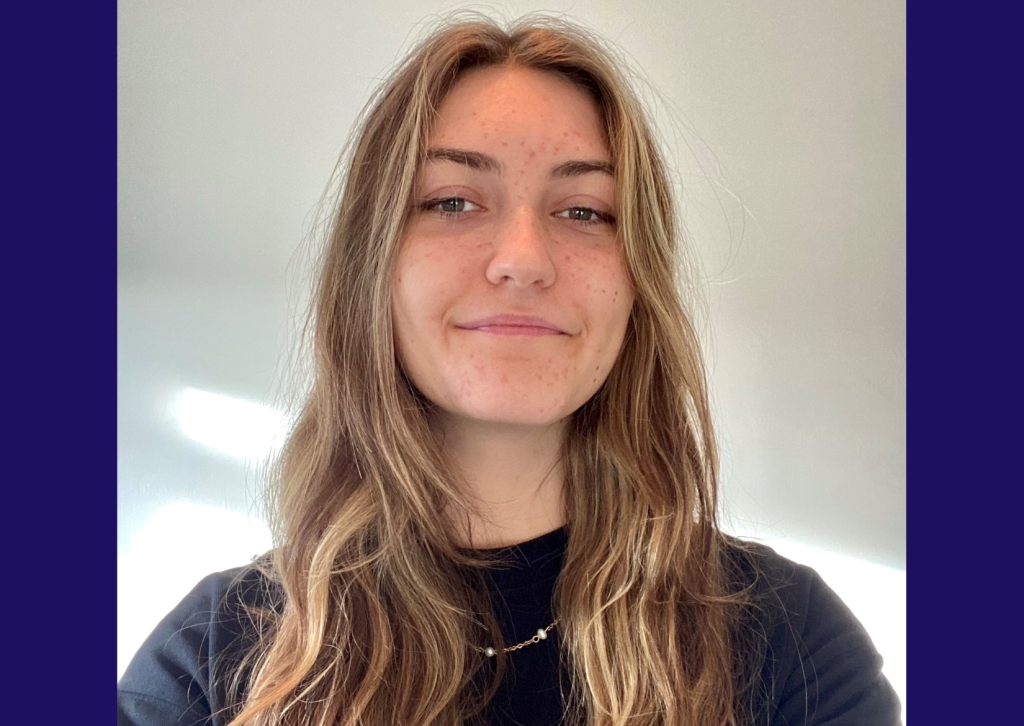

Freya Garrigan, Year 13 A Level Student
Freya Garrigan, a Year 13 A Level Student from St Richard Reynolds Catholic College, shares the story of her journey with...
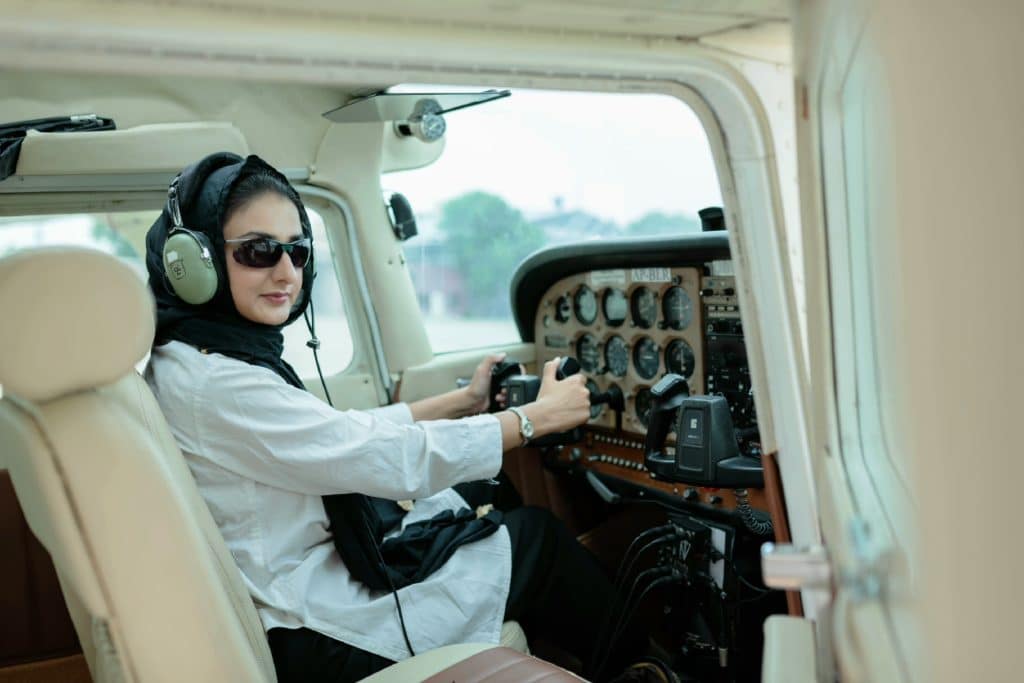
Dr. Sarah Qureshi -Entrepreneurship
Role model for leadership/ achieving transformational change Sarah is considered to be a trailblazer for women in STEM and an...

Samantha Katanda – Aerospace Engineering Degree Apprentice – BAE Systems
Up until I did work experience in Year 11 I was almost certain that I wanted to go into finance – this changed however after I...

Amelia Weaver- Advanced Engineering Technician Apprentice at BAE Systems Air
Why I decided to do an Apprenticeship I have always been fascinated about aircraft since attending my first air show with my Dad...
View all stories
- Full name *
- Telephone *
- Enquiry regarding... * Please choose Careers - Engineering Careers - Flying Careers - Maintenance Careers - Operations Careers - Defence Careers - Space Careers - Specialist Areas Careers Support / Advice Members Industry Directory / Case Studies Other
- Email This field is for validation purposes and should be left unchanged.
Our Latest Tweets
Our latest news.

The RAeS President’s Conference and Cool Aeronautics!
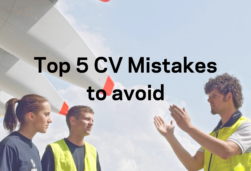
Top 5 CV Mistakes to Avoid
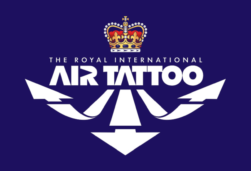
The Royal International Air Tattoo Roundup
Upcoming events.
This site uses cookies to give you a better experience. By continuing to browse the site you agree to our use of cookies on this device in accordance with our privacy policy unless you have disabled them on your browser.
- Log in
- Site search
Air cabin crew
Air cabin crew is an important role on all flights, with the aim of making the flying experience pleasant and safe for passengers
As a cabin crew member, you'll provide excellent customer care to passengers while ensuring their comfort and safety throughout the flight. You'll serve refreshments and meals and will also sell gifts and duty-free items to passengers.
As part of your role, you'll be trained to deal with security and emergency situations, which can include administering first aid to passengers.
It's also your responsibility to ensure that all emergency equipment is in working order prior to take-off and that there are enough supplies on board. You'll then take part in a safety demonstration to make sure passengers know how to use the equipment and what the safety procedures are.
Responsibilities
As an air cabin crew member, you'll need to:
- be professional, punctual and courteous at all times
- attend a pre-flight briefing, during which you'll be assigned your working positions for the upcoming flight. Crew are informed of flight details, the schedule, the number of infants on board and if there are passengers with any special requirements, such as diabetic passengers or passengers in wheelchairs
- carry out pre-flight duties, including checking the safety equipment and doing security checks, ensuring the aircraft is clean and tidy and that information in the seat pockets is up to date and all meals, drinks and stock are on board
- welcome passengers on board, check documents and direct them to their seats
- inform passengers about safety procedures and ensure that all hand luggage is securely stored away
- check all seat belts and galleys are secure prior to take-off
- make announcements on behalf of the pilot and answer questions during the flight
- serve meals and refreshments
- sell duty-free goods (which can count towards personal targets for commission) and advise passengers of any allowance restrictions in force at their destination
- reassure passengers and ensure they follow safety procedures correctly in emergency situations
- deal with any difficult or inebriated passengers (who may be acting in a rude or anti-social way) politely but firmly, to ensure the safety and comfort of everyone on the flight
- give first aid where necessary
- ensure passengers disembark safely at the end of a flight and check that there is no luggage left in the overhead lockers and no stowaways or suspicious items on board
- complete paperwork, including writing a flight report and totalling duty-free sales.
- Base pay can vary greatly depending on the airline as some pay better than others, but you can expect a starting salary in the region of £14,000 to £22,000.
- Once you have some experience, you'll be able to earn a base rate of £17,000 to £24,000 a year.
- Base pay at senior cabin crew level, which can be reached after a few years, is around £28,000 to as much as £45,000. On top of your base rate, you may get an hourly flight rate for every hour you're on duty, performance bonuses and commission for inflight retail. Bonuses can amount to an additional £5,000 per year on average.
Some airlines offer additional allowances on top of base pay for the number of languages spoken. Most airlines also offer overnight payments for nights spent away from home.
The majority of airlines offer some kind of flight discount to cabin crew, which can include free domestic flights, discounted international flights and discounted travel for immediate family. The extent of these discounts can range dramatically depending on the airline so check for individual benefits.
Income figures are intended as a guide only.
Working hours
Cabin crew work shifts, which usually involves irregular and unsocial hours. This can mean working early mornings, through the night, at weekends and on public holidays. Hours can vary from week to week with some airlines. Short-haul flights may provide more regular hours than long haul.
You may sometimes have to work or be flexible on your days off if your return journey is cancelled or delayed, but you'll be compensated in these cases.
Part-time opportunities are available, still involving unsocial hours.
What to expect
- Airlines catering for the package holiday market tend to recruit air cabin crew on a seasonal basis.
- Some airlines require staff to live within a certain radius/easy travelling distance of the airport, as you may need to be on standby for work at short notice. You might also be based abroad.
- The work can be demanding as cabin crew have to deal with, and often work through, tiredness and jet lag if crossing over different time zones. You'll work in confined spaces and will have to spend a lot of time on your feet. You'll need to maintain a positive disposition even when dealing with challenging passengers.
- The airline will provide you with a uniform, and you'll be expected to dress smartly and be well presented at all times. Tattoos and piercings must be covered in some cases.
- The amount of time spent away from home varies depending on the airline you work for, and whether you're working on short or long-haul flights. In short-haul you'll typically be back within the same day while long-haul flights will require nights spent away from home.
- You'll work with a variety of people from different backgrounds and cultures. On long-haul flights, you'll get to experience the destinations you're flying to although this may only be for a few hours/one evening at a time in some cases. With short-haul flights, you'll typically have a tight turnaround of between 45 minutes and 2 hours before flying back. That time will be spent getting the aircraft ready for the flight and you won't have time to see any of the destination.
Qualifications
A degree, HND/foundation degree or postgraduate qualification is not required for entry into work as a cabin crew member. Instead, most airlines expect you to have a good secondary education, with some requiring grade 4 (C) or above in English and maths.
Although not asked for by employers, a degree, HND or foundation degree in one of the following subjects can show the airline that you have an interest in the area:
- hospitality management
- leisure and tourism management
Being able to speak other languages is particularly useful and this could put you at an advantage against other candidates.
Vocational qualifications (NVQs and BTECs) are available at different levels in various cabin crew topics, as well as apprenticeships. They are awarded by bodies such as:
- City & Guilds
- Northern Council for Further Education (NCFE)
Again, these are useful for showing your commitment and interest to the area. One and two-day taster courses, which give an indication of what cabin crew work is like, and other introductory courses are also available. For details, see course providers such as Cabin Crew Wings .
Completion of these courses and qualifications demonstrates your enthusiasm for the career but won't guarantee you a job. They may give you an edge over other candidates, but most airlines do not require them before considering you for a vacancy.
Airlines do have a set of criteria, however, which candidates must meet. This usually includes some or all of the following:
- minimum age of 18, in some cases 21
- good standard of health and fitness, with the ability to swim 25 metres unaided
- minimum height requirement (for reaching overhead lockers), which may differ between airlines and are usually in proportion to weight. In the UK, this is often measured as reach rather than height
- good hearing and eyesight, although glasses and contact lenses are allowed
- valid passport permitting unrestricted travel worldwide
- a completed Disclosure and Barring Service (DBS) check
- a medical exam, although some airlines may not require this.
You will need to show:
- excellent communication skills
- exceptional customer service
- confidence in dealing with a range of people
- good co-operation skills as you'll work with different teams day-to-day
- compassion and the ability to support your colleagues
- competence in handling difficult situations and the ability to remain calm under pressure and in emergency situations
- the gift of being tactful and diplomatic with passengers but also assertive where necessary
- commercial awareness and sales skills
- the ability to use a hand-held device or computer
- flexibility in working unsocial hours on any day of the year
- the capability to work quickly and efficiently, often to tight time constraints
- numeracy skills for handling cash, including foreign currency
- the capacity to work in a confined space
- you can remain cheerful despite long working hours
- the ability to diffuse situations calmly and quickly.
Work experience
Airlines may wish to see evidence of relevant work experience rather than qualifications, as they're keen to see that candidates have the required skills.
Part-time or temporary work in customer service roles will be particularly useful, as will any work that demonstrates teamwork and communication. A role within catering, hotels, travel and tourism will also help to show you have the necessary skills and knowledge.
Find out more about the different kinds of work experience and internships that are available.
Airlines operate on a chartered or scheduled basis, with some operating a mixture of both. Chartered flights usually run during the summer and/or skiing seasons to the most popular tourist destinations, whereas scheduled flights operate at regular times all year round and go to a range of destinations.
Typical employers include large and medium-sized British airlines and international carriers. For a list of member, passenger and cargo airlines, consisting of around 325 airlines, see International Air Transportation Association (IATA) . Individual airports usually have a list of the airlines and tour operators operating from their airport on their website.
Temporary seasonal opportunities are available through airlines and tour operators to cover the peak summer period (May to October).
Permanent contracts are rare and competition for them is fierce; it may take several years of seasonal work before you can apply for a permanent contract.
Business and corporate jet companies also hire cabin crew, sometimes for very very important (VVIP) cabin crew flight attendant positions for their prestigious clients. This role may also be advertised under the title of corporate or executive cabin attendant or VIP cabin crew.
Look for job vacancies at:
- All Flying Jobs
- Aviation Jobsearch
- Cabin Crew Wings Job Board
- Flightglobal Jobs
- Latest Pilot Jobs
Recruitment firms such as The Launch Group handle vacancies and provide support and advice.
You can also check individual airline websites for their job vacancies.
This is a highly competitive profession. You'll be applying against a variety of candidates, from school leavers to those with a significant amount of experience but stay focused and persevere.
Airlines recruit throughout the year so keep checking websites regularly and make speculative applications. Research the airline you're interested in thoroughly and target your application accordingly.
Professional development
Each airline provides its own structured training programme for new entrants, which can vary in length. Some of the training may take place virtually. Typically, it will last between four and eight weeks, though longer if you're in a specialist position such as First Class.
The primary focus of the training is passenger safety, including the aircraft's safety equipment and emergency procedures, security and first aid, as well as service and hospitality.
Training also involves topics such as:
- assertiveness
- cultural awareness
- currency exchange
- customs and immigration regulations
- first aid and resuscitation
- self-defence
- fire fighting
- food preparation and service
- galley management
- passenger care and customer relations
- product knowledge.
Following the basic training, you'll usually be under supervision for your first two flights where your performance will be monitored by trainers or senior crew. Once you're a full member of the cabin crew team, you;ll take refresher courses every year.
When appointed to a new position, it's usual for air cabin crew to attend a structured training programme tailored to that position. For example, air cabin crew who have previously worked on short-haul flights but have recently obtained a job working in long haul will attend a training programme tailored for long-haul positions.
Additionally, airlines that operate a range of different aircrafts vary the training programme to suit the type of plane. Airlines also encourage on-going development through in-house specialist courses, in areas such as crew resource management.
Career prospects
Promotion for air cabin crew is based on experience and performance. From the role of cabin crew member, it's possible to progress to the position of purser or chief purser - which is the title given to the chief flight attendant.
Pursers have the same responsibilities as the general cabin crew but are also given the management responsibilities of a certain cabin, such as first class or business class. As purser, you'll ensure that all crew within your cabin deliver the highest level of customer service while encouraging the sale of duty-free items. Between two to ten years' experience is usually needed for this promotional step, check requirements with individual airlines for details.
From the role of purser, you can progress to senior cabin crew. This position is known at some airlines as cabin supervisor or cabin service director. The role is very similar to that of the purser except you'll have responsibility for all cabin crew on board, not just in one particular cabin. All cabin crew and the purser/chief purser will report to you. You'll usually be involved with training and supervising new recruits and will have to ensure all relevant paperwork is completed at the end of the flight.
Some air cabin crew may also wish to become very very important person (VVIP) cabin crew (also known as corporate/executive cabin attendants). This type of work is carried out with very important private clients, usually on private aircraft. The clients are typically prestigious and may include government officials or royal families. The highest level of service is expected, and employers require experience of working in premium (business or first) class. Many VVIP positions are based in wealth areas of the Middle East.
Another option is to move into ground-based operations, such as cabin crew training or recruitment, passenger services or crew controller. Or, at larger airlines, you can move into other areas, including marketing, sales, HR and safety training.
How would you rate this page?
On a scale where 1 is dislike and 5 is like
- Dislike 1 unhappy-very
- Like 5 happy-very
Thank you for rating the page

Passenger Codes: The Basics
When starting a new career as Cabin Crew you will be required to learn a lot of new information – part of this will be learning the different passenger codes.
Cabin Crew are required to learn the aviation terminology used in the industry. As Cabin Crew you will need to understand and use passenger codes when referring to the different passengers onboard the aircraft. This is especially important for passengers who may require additional assistance or support during the flight. You will also need to understand them during boarding and when reading the passenger list. This will allow you to know which passengers on board require further assistance.
If you’re interested in finding out more about what is required of you when you become Cabin Crew, such as the new terminology and codes you’re required to learn, check out my Becoming Cabin Crew e-book!
Passenger codes – reduced mobility
WCHR – This code is used for a passenger who requires a wheelchair to move between the aircraft and terminal.
WCHS – This passenger code is used to describe a passenger who cannot use stairs. They can move around the cabin of the plane but will require a wheelchair to move between the aircraft and terminal. They will also require a wheelchair from arrivals and departure points on the city side of the terminal.
WCHC – Used to describe a passenger who is immobile. They will require a wheelchair or other means of movement and assistance at all time from arrival at the airport to seating on the aircraft. They may also require a special seat fitted to their needs.
Other passenger codes
Passenger codes are also required for other passengers who will require the assistance of Cabin Crew during the flight. These include:
BLND – This passenger code is used to describe a blind passenger.
DEAF – This is used for a passenger who is deaf or deaf without speech.
UNMIN – An unaccompanied minor. Cabin Crew are required to watch over minors who have no parent or guardian on board the aircraft.
INF – An infant.
MAAS – Meet and Assist. This is used to describe passengers who require the help of Meet and Assist who help passengers with restricted mobility move to and from the aircraft.
MEDA – This is used to describe a passenger who has medical needs. For example, passengers who have a medical condition or allergy that Cabin Crew need to know for during the flight. E.g. if a passenger has a severe nut allergy then Cabin Crew can prevent passengers from buying nuts and make an announcement for passengers to not eat any during the flight.
NERV – A nervous flyer.
VIP – Very important person.
It is important for Cabin Crew to understand the different passenger codes so that they understand who is onboard the flight and what assistance they will need.

- View your shopping cart Your basket is empty Go to the Store

A-Z of Cabin Crew Terminology
A ft: The rear of the aircraft.
B ulkhead: The seats of the aircraft situated behind a wall/ galley/ another cabin. Often known as “Exit Row Seats” depending on the type of aircraft. These generally have more legroom and/ or bassinet capabilities.
C SM or CCSV: Cabin Service Manager or a Cabin Crew Supervisor. The Senior Cabin Crew on board a flight (those who are in charge of the Cabin). The chain of command on aircraft always involves the Captain as the highest person of authority on an aircraft. He/she has the final say on all matters relating to safety and service.
D isarm Doors: Not only are the doors on an aircraft just that, they are actually considered vital safety equipment. They must be armed for take-off and disarmed before opening (after landing). Depending on the location of the door, most will either have an escape slide that turns into a Life Raft or alternatively a rope to assist passengers to walk along the wings of the aircraft in a ditching emergency. “Ditching” is the term used to describe an emergency landing/evacuation performed on water.

E scape Slide: An emergency slide that is activated automatically upon opening an armed aircraft door. The slides are inflated at lightning speed and with immense power. When inflating a slide, crew must stand in front of the door to prevent passengers from exiting before the slide is fully deployed. It is important to shout the commands with great volume and authority in order to be heard over the inflating of the slides, the opening of the door and all of the warning tones aboard the aircraft! I think the words “Open Seat Belts, Leave Everything, This Way, This Way” are emblazoned on my brain and will be there to haunt me for many years to come, for fear of ever forgetting and not being fully alert! These commands are a vital part of being Cabin Crew.
F orward: The front of the aircraft. Cabin Crew will use “Aft” and “Forward” to allocate positions to the crew.
G alley: The “kitchen” on the aircraft where the food is prepared, heated and plated. This is where the ovens, taps, coffee makers etc are located. G could also stand for “Godiva” which are gourmet chocolates gifted to passengers in Business Class on Emirates Flights. They are also a very tired, hungry, crew’s favourite!
H at rack: Also known as the overhead storage compartments. I was trained to call them “hat racks”
I FE: In Flight Entertainment system. As well as using this to play movies and TV shows, many airlines have games, communication options and even cameras and maps to track the aircraft’s progress through the sky.
J Class: Airline terminology for Business Class. Don’t ask me why- I have no idea. Neither does anyone else that I have asked in all my time in Aviation (approximately 5 years)
K it: There are many, many kits on board an aircraft, all hidden from passenger’s view. They are readily available should an emergency happen at any time during a flight, taxi, take-off or landing. Most of these contain First Aid Equipment and Medicine, but some even contain restraints, survival materials and distress beacons.
L ayover: A flight where the crew must stay overnight in a foreign port. Layovers typically range from 23-52 hours depending on the length of the flight.
M edlink: An online, 24/7 system that allows crew to call Doctors/Nurses at any stage during the flight, or even at 38000ft. Medlink must be consulted before opening some Medicine Kits, and will always give clear instructions to the crew on how to assist a passenger that needs medical attention should they be faced with a situation that differs from their training. A very vital and useful resource!
N OTOC: Notification to the Captain: A form that must be filled out to notify the Captain of any Dangerous Goods on board, either in the cargo compartment or in the Cabin. This can be anything from passengers travelling with their own oxygen source, to a live animal in the cargo or a wheelchair that has a lithium ion battery.
O utstation : A port where the crew stays overnight.
P ort: An airport that is not your base. A ‘base’ is the city in which you fly out of most (in my case- Dubai ). Some crew commute, which means they live in one city, but always fly out of another for work. This means, essentially they are hopping on a plane before they even sign on to work!

Q atar Airways: has been named the world’s best airline for 2017, taking the title from fellow Middle-Eastern carrier Emirates,
R aft Accessory Kit: A survival kit containing a distress beacon, flares, radio, rations, survival guide, water purifier, iodine tablets and much more in order to assist and prolong survival in the elements (i.e. a worst case scenario).
S pecial Meal: Any meals that are pre-ordered for special circumstances, i.e. dietary requirements, medical requirements, allergies, religious meals, children’s meals. I bet you have no idea how many special meal codes there are, and how important it is to memorise them! *Hint* if you want to be served first on an aircraft, order a special meal. These must be allocated before any other passengers are served.
T axi: The time spent on a runway moving to/from the gate. The time when the aircraft is either gathering or losing speed, preparing to take off or land.
U niform: Did you know that oven gloves, stockings and the “Service Waistcoat” (worn in flight only) are essential uniform items? Each crew member must provide evidence of having these items (as well as Travel Documents and Visas) before commencing the briefing at the start of every flight. No uniform = no flying, in some cases!
V -speeds: In aviation, V-speeds are standard terms used to define airspeeds important or useful to the operation of all aircraft. Other useful ‘Vs’ are VGML and VLML, worldwide airline codes used for vegan and vegetarian meals.
W e Care: A service that is typical of Emirates , but basically a round-the-clock beverages, snack, cleaning regime that ensures all customers’ needs are met throughout the flight, and not just during the meal services. All airlines have a service equivalent to this, particularly on extremely long flights.
X -ray, Y ankee and Z ulu: The last 3 letters of the 26 code words in the International phonetic alphabet.
Emirates receives 300,000 Cabin Crew applications
9 tips for dealing with difficult passengers, one day i decided that i will be cabin crew… and here i am, presentations in the cabin crew recruitment process, norwegian cabin crew recruitment process 2023, ‘branding’ yourself as a great cabin crew applicant, 4 ways to make the most of the new year and prepare yourself for a more “crew” you, £1000 bonus for british airways cabin crew, being your virtual best in the cabin crew recruitment process, flight shaming – our take, related articles.

Jet2 Cabin Crew refused to help disabled man

Cabin Crew ghost stories….guaranteed to give you the spooks!!

10 Movies That Will Inspire You to Become a Cabin Crew Member

British Airways Cabin Crew Assessment Day
Leave a reply cancel reply.
Your email address will not be published. Required fields are marked *

Don't have an account?
CABIN CREW & HOSPITALITY
Advanced certification in.
EDUCATIONAL QUALIFICATIONS
18-27 Years
ABOUT THIS COURSE
Advanced Certification in Cabin Crew and Hospitality Training is designed for the people who like to become an Airhostess performing service which ensure that air travelers are flying in a safe environment, opt for cabin crew as a full-fledged career prospect because of the high salaries, exciting experience of flying and visiting new places all over the world. This course provides training in communication, teamwork, first aid, personality development and customer care of International standards of airlines’, in-flight operations and hospitality industry. The course offers in-depth knowledge of developing the customer service attitude and Grooming, general etiquette and image management including communication and soft skills to enhance personality, in-flight services, and safety & security procedure of aircraft.
WHY MYFLEDGE?
Consider enrolling in the Myfledge Course to seize the abundant opportunities presented by the impending exponential growth in the aviation industry. Projections indicate that India will require around 400 airports and 300 aircraft in the coming decade, leading to an increased demand for skilled professionals in the hospitality and travel sectors. This well-structured 11-month program, crafted by industry experts, equips MyFledge students with comprehensive and inclusive training, empowering them to create their own path to success.
Airline
Market
Size in
What you'll learn
01 introduction to aviation.
The Aviation industry is the business sector that gives services in the aircraft and at the airports which involves managing the workflow of airline and airport by carrying out the day-to-day operations of an airport or an airline. A career in aviation provides an opportunity that offers adventure, financial security, global travel & tons of opportunities to grow fast and be successful in your career.
02 PROFESSIONAL IMAGE
This module at large focuses on the international standards of grooming and etiquette required in the aviation, hospitality, tourism and customer service industries. The module trains the student on the grooming skills to be presentable at work. This course familiarizes the importance of complementary characteristics and participating in team-building activities.
03 A DAY IN THE LIFE OF CABIN CREW
Just like passengers, crew report for duty approximately 2 hours before the and attend a briefing about the flight ahead, conduct safety and security checks, welcoming passengers, looking after the welfare of the passengers. Cabin crew build more than a career and will enjoy exploring places that people only dreamt of visiting while also getting paid for the journey and countless experiences that will grow you, as a person and as a professional.
04 INTERVIEW HANDLING SKILLS
This module helps the student to enhance their knowledge and personality to clear the interview and makes them a global leader. Hence this will work on discipline, patience, responsibility, punctuality, commitment and self-confidence that are important to have to face the interview be a part of this challenging and well-paid career in the aviation and hospitality industry.
05 FIRST AID
Cabin Crew or Flight Attendant is to offer immediate and temporary FIRST AID to a customer in sudden illness during flights until professional care can be obtained. First-Aid is given to prevent permanent disability, to relieve pain and the injuries or sudden cause of illness happens in the flights. Cabin crew must be skilled in providing First-Aid, show encouragement, willingness to help, and promotion of confidence by the demonstration of competence.
06 RESPONSIBLE SERVICE OF ALCOHOL
The safety, security, and comfort of passengers are of the highest priority to cabin crew and airlines. For this reason, airlines promote the safe and responsible service of alcohol on board; the crew monitors their consumption by passengers and mitigates any behaviors of concern by the passengers. The service of alcohol on board an aircraft depends on the airline’s policies or the Country’s regulations which results in an alcohol-free portion of the flight.
07 AIRCRAFT FAMILARIZATION
This course is also designed and useful for the training of cabin crew and flight attendants to Uncovering and demystifying the mystery around the miracle of the aircraft. After completing this course, students should be able to understand and explain Aircraft Design & Configuration, Understanding the Aircraft, Types & Categorization of Aircraft and Aviation Statistics & Forecasts.
08 EMERGENCY EOUIPMENTS
Emergency & safety equipment training is an essential part of Professionals’ corporate flight attendants. This covers the use and location of all emergency and safety equipment carried on board of your aircraft and training is given on the location, removal, and use of all safety and survival equipment carried in the flight.
09 NON-NORMAL SITUATIONS
(FIRE / DECOMPRESSION / FLIGHT CREW INCAPACITATION) Fire and Smoke Training module emphasis the responsibility of cabin crew to deal promptly with emergencies involving fire and smoke. The module cover procedure to follow in such a situation is to inform the flight crew immediately, as well as the specific actions are taken that are necessary for coordination and assistance.
10 EMERGENCY PROCEDURES
The module in cabin crew training ensures that each trainee acquires the knowledge and skills required to perform the duties and responsibilities related to the safety of passengers and flight during normal and even in emergencies. This training is consists of practice opening of doors and emergency exits and slide evacuation including crowd control and reviews of other in-flight emergencies such as severe air turbulence and sudden decompression and medical emergency during flight.
11 INFLIGHT SERVICES
In-flight service refers to the pre-flight briefing, welcoming passengers on board, and informing passengers about the safety procedures, pre-flight duties, serving meals and refreshments, giving first aid, ensuring passengers by checking the passenger’s seat belts and galleys and completing paperwork like flight reports.
12 HUMAN FACTORS AND FATIGUE
Many airline professionals whether it's pilot or cabin crew battle fatigue, as evidenced by the fact that the aviation sector works 24/7 sometimes fly at night hours and sometimes flights are too long and hectic. Cabin crew has to deal with varying schedules, changing time zones and long flight hours and hectic schedules.
13 POOL AND SLIDE DRILLS
This is a comprehensive drill to cover demonstration of the types of lifejackets carried and all ditching procedures where flotation equipment is carried on the aircraft. This module helps to learn demonstration of commands and exit techniques for emergency exits and water survival techniques for any emergency landing situation in the water.
14 AIRLINE TERMS
The airline terms used by aviation professionals are useful whether you’re training for an aviation job, work for an airline that explains everything from airport procedures, in-flight service, and regulations to airplane parts. Flight attendants and other airline employees all speak a different “language.” And use terms that are unique to the passengers.
15 CABIN ANNOUNCEMENTS
A cabin and airline announcement script is an important part of their jobs and shows their communication skills publicly. This module trains aspiring student’s good command on language and skills for public speaking as well as knowledge of briefing details deliver to passengers onboard. Cabin announcements are provided simply as guidance for boarding and Safety demonstration.
16 RECRUITMENT DAY SKILLS
The reality of the cabin crew recruitment process is many with the same skills and talents and is all beautifully dressed, perfectly groomed, polite, smiling and friendly. One of the chosen candidates who will have the opportunity to show more of their personality stand out on this day has the following attributes: 1. CV 2. Confidence 3. First impression 4. English Fluency 5. Know the airline 6. Dress for success 7.Cabin Crew Personality
ELIGIBILITY
Excellent in English & Hindi Communication.
Having Pleasing Personality.
Basic Knowledge of English
No Visible tattoos & marks.
Minimum Height: 155 cm for female & 170 cm for male.
BMI ranges for female 18-22 and for male 18-25.
Selection will be on the basis of personal interview.
750 0+
Placemen ts.
.webp)
- EASA Community Network
Definition of ‘cabin crew’
Expand all questions
What is the definition of ‘cabin crew member’?
Reference: Commission Regulation (EU) No 1178/2011 Aircrew , Article 2 ‘Definitions’.
Article 2 ‘Definitions’ defines ‘cabin crew member’ as follows: Reference: Commission Regulation (EU) No 1178/2011 Aircrew, Article 2 ‘Definitions’.
Article 2 ‘Definitions’ defines ‘cabin crew member’ as follows:
(11) “Cabin crew member” means an appropriately qualified crew member, other than a flight crew or technical crew member, who is assigned by an operator to perform duties related to the safety of passengers and flight during operations;
Was this helpful?
Does the definition of ‘aircrew’ include cabin crew members.
Yes, the definition of ‘aircrew’ includes a cabin crew member as well.
Article 2 ‘Definitions’ defines ‘aircrew’ as follows:
(12) “Aircrew” means flight crew and cabin crew;
- Cambridge Dictionary +Plus
Meaning of cabin crew in English
Your browser doesn't support HTML5 audio
- The airline already allows female cabin crew to wear trousers .
- I think the cabin crew did a remarkable job of keeping everything under control .
- Ground staff and cabin crew were all very pleasant .
- The couple were both cabin crew for British Airways.
- The airline cancelled dozens of flights as cabin crews began a strike over pay .
- How can cabin staff ensure passengers keep their phones switched off?
- air control
- air controller
- air hostess
- air marshal
- air traffic control
- air traffic controller
- flight attendant
- ground crew
- parachutist
- sky marshal
You can also find related words, phrases, and synonyms in the topics:
Translations of cabin crew
Get a quick, free translation!

Word of the Day
put something off
to decide or arrange to delay an event or activity until a later time or date

It’s not really my thing (How to say you don’t like something)

Learn more with +Plus
- Recent and Recommended {{#preferredDictionaries}} {{name}} {{/preferredDictionaries}}
- Definitions Clear explanations of natural written and spoken English English Learner’s Dictionary Essential British English Essential American English
- Grammar and thesaurus Usage explanations of natural written and spoken English Grammar Thesaurus
- Pronunciation British and American pronunciations with audio English Pronunciation
- English–Chinese (Simplified) Chinese (Simplified)–English
- English–Chinese (Traditional) Chinese (Traditional)–English
- English–Dutch Dutch–English
- English–French French–English
- English–German German–English
- English–Indonesian Indonesian–English
- English–Italian Italian–English
- English–Japanese Japanese–English
- English–Norwegian Norwegian–English
- English–Polish Polish–English
- English–Portuguese Portuguese–English
- English–Spanish Spanish–English
- English–Swedish Swedish–English
- Dictionary +Plus Word Lists
- English Noun
- Translations
- All translations
To add cabin crew to a word list please sign up or log in.
Add cabin crew to one of your lists below, or create a new one.
{{message}}
Something went wrong.
There was a problem sending your report.

- Professional
Cabin Crew Attestation
EASA Regulations require each cabin crew member must undergo initial training and hold an attestation of that training. Corporate Flight Training is a Transport Malta Civil aviation Directorate (TM CAD) approved Cabin Crew Training Organisation (CCTO 008) and we are approved to deliver the required
Contact the Institutes
- About the Course
- About Institute
Advertisement
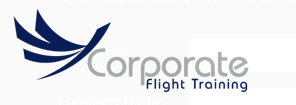
Course Details
EASA Cabin Crew Attestation
EASA Regulations require each cabin crew member must undergo initial training and hold an attestation of that training. Corporate Flight Training is a Transport Malta Civil aviation Directorate (TM CAD) approved Cabin Crew Training Organisation (CCTO 008) and we are approved to deliver the required training and issue the Cabin Crew Attestation.
The EASA Cabin Crew Attestation Course includes all the generic safety training modules that are usually provided by the airlines. In doing so this reduces the airline training time and cost leaving only the aircraft type-specific and company procedural training to be covered when you are employed by your airline or aircraft operator of choice.
The EASA Cabin Crew Attestation (CCA) is valid in all European countries and for all European airlines and is frequently requested for both commercial and corporate jet cabin crew positions. The course duration is 95 hours.
What is an Attestation?
If you wish to work as Cabin Crew in commercial air transport within a Member State of the European Community you must hold a valid Cabin Crew Attestation (CCA).
This is a certificate of professional competency which permits you to discharge the duties of Cabin Crew on European Community registered aircraft (source UK CAA). To obtain the CCA you need to attend a training course that is delivered by an organisation approved by a European National Aviation Authority.
Why should I get an Attestation?
EASA Regulations require each cabin crew member must undergo initial training and hold an attestation of that training. Corporate Flight Training is a Transport Malta Civil aviation Directorate (TM CAD) approved Cabin Crew Training Organisation (CCTO 008) and we are approved to deliver the required training and issue the Cabin Crew Attestation.
Many airlines look favourably upon candidates who are in possession of a valid Attestation of Cabin Crew. This means the company training time is cut down as the company is only required to conduct an operator conversion/aircraft type training.
Holding an Attestation of Cabin Crew also demonstrates you have reached the required standards of training, have gained the required knowledge and your commitment. It gives candidates excellent cabin crew employment prospects and makes you much more employable than candidates without the Attestation.
For corporate aircraft operators of 19 seats or less, by employing Flight Attendants who hold an EASA Cabin Crew Attestation the operator can utilse them as Cabin Crew who are able to participate in safety related duties.
The EASA Cabin Crew Attestation is valid for all European airlines and operators.
Will it help me find a job as cabin crew?
Absolutely, many airlines recruit candidates who hold an EASA Cabin Crew Attestation. It is truly an investment in your future career and looked upon favourably by airlines and aviation recruiters.
In the corporate aviation sector many companies now look to employ Flight Attendants holding an EASA Cabin Crew Attestation in order for them to function in all safety related duties regardless of the aircraft seating capacity,
Testing and Examinations
Throughout your course you will be tested to consolidate your learning and understanding of the subject. On the last day of your course you will complete a final examination which must be passed in order to be issued with the Attestation of Cabin Crew.
there are also practical examinations which form part of the EASA CCA testing requirement. The course is extremely regulated and does require a high level of competence.
Exam Failures
Don’t panic, if you fail a modular test or the final examination you will be given an opportunity to resit. Our team of instructors are on hand to mentor, coach and guide you every step of the way to ensure you are fully confident and are able to pass the examination with flying colours.
Course Entry Requirements
All candidates must be 18 years or older
Speak, read and write a good level of English
Must not have had a Cabin Crew Attestation revoked or suspended by a competent authority or another member state
Must be able to swim at least one pool length unaided
Course syllabus
The course covers some of the following topics:
The following modules are covered during your training course, if you would like a more in-depth syllabus please do not hesitate to contact us.
Module 1: General theoretical knowledge of aviation and aviation regulations
Module 2: Passenger handling and cabin Surveillance (SOPS)
Module 3: Communication
Module 4: Passenger handling and Cabin Surveillance (SEP)
Module 5: Aviation Security
Module 6: Survival and Wet Drills
Module 7: Fire & Smoke
Module 8: Dangerous Goods
Module 9: Aviation First Aid
Module 10: Human Factors and Crew Resource Management.
Airlines and Operators
We can manage and deliver the Attestation and training on your behalf. This will cut down on your training time and costs and also ensure your trainees have met the required standards of competency. We can deliver training at any location. Contact us today to discuss your training requirements [email protected] .
Colleges and Academies
CFT are currently working with a number of colleges and academies. We have a discounted rate for colleges, please contact us for further information.
What does the course include?
All candidates will receive a 58-page pre-course study booklet to prepare you for the course and access to our LMS for the E-Learning Modules which must be completed prior to attending the course.
The course which is delivered over 9 days includes a wet drill performed in the swimming pool, an opportunity to get to grips with flotation equipment, aircraft life rafts and survival equipment.
The course also includes a live fire drill in the rig and smoke-filled cabin exercise. Candidates will have the opportunity to get to grips with handling and usage of aircraft fire-fighting equipment.
Each candidate will receive a copy of the CFT Operations manual which is yours to keep and take away.
Aviation Training & Consultancy
Award Winning Aviation Training
Corporate Flight Training are a multi award winning aviation training organisation and consultancy service. CFT were voted best UK Aviation Safety Training Course Provider 2019 - in the Air Transport Awards, Best UK Aviation Service Training Provider 2019 in the Lux Life Hospitality Awards and Best Cabin Crew Training Organisation UK 2020 in the CV awards.
We deliver a vast program of aviation safety training courses from our Luton airport training centre and in Malta, and are a training partner to a number of airlines in the UK and Europe.
Aviation Consultancy Services
Through our consultancy services we have worked with a number of long-haul commercial airlines startups. Recent projects have included developing and delivering training courses for authority approval, providing key personnel for management roles.
Advisory on process and structure from early airline startup phases leading to proving flights and AOC approval. The scope of our consultancy services we deliver includes:
Development and delivery of company training courses (Initial, OCC, Recurrent, other training as required)
Development of approved syllabi
Regulation guidance
Acceptance of new aircraft inspections (cabin)
Preparation for proving flights
Cabin Crew Management and Training personal support
Train the Trainer Courses
Cabin Crew Recruitment
Customer Service and Leadership Training
SCCM Training
Development of Cabin Crew Attestation courses and structure for operators looking for CCTO approval (EASA or UK)
Provision of instructors to meet shortfalls
The Corporate Flight Team
The CFT senior team have worked in aviation for many years in senior positions as post holders, Heads of Training and management in both the corporate and commercial aviation sectors.
We pride ourselves on having a team of business aviation experts at the core of our business. As a company we understand the needs of the ever changing aviation industry and deliver solutions to assist our clients meet their operational and regulatory requirements.
Our training Instructors meet rigorous standards of training and bring with them a vast wealth of operational experience and expertise, earning our first-class training services their industry wide recognition.
Luton Branch
Check out more cabin crew courses in uk.

Air Cabin Crew Training (Fast Track)
Our Fast Track route is for those students who have achieved their Maths & English qualifications. The Fast Track course allows you to complete the course in six months (September until the end of March), so you can be ready to fly in the summer season.
- Price Inquire Now
- Start Date Inquire Now
- Duration 1 Year
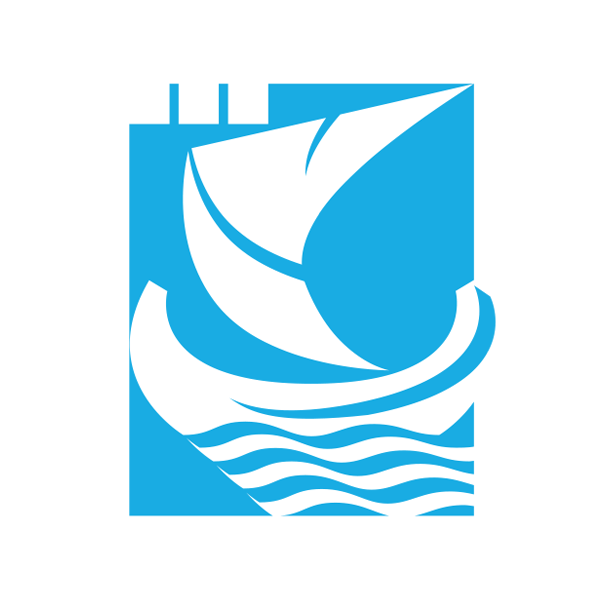
Airport Ground Operations Level 2 Diploma
This one-year, full-time course will help you prepare for a career on the ground at airport terminals. You will learn about the work that goes into making sure everything runs smoothly in a busy airport.

English for Tourism and Hospitality
This course will help your team confidently welcome your guests and customers in English, and understand them better in order to help them more effectively.
- Duration 2 Weeks

Introductory Diploma in Tourism
This Level 1 Diploma in Tourism provides learners with the opportunity to develop a new found knowledge and skillset in the Tourism sector, whilst also supporting progression to further study.
- Duration 35 Weeks
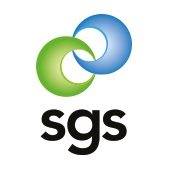
Cabin Crew Level 2
Our Level 2 course explores the exciting and rapidly changing world of Aviation. As a student, you will cover a broad range of subjects giving you the core skills needed to work in this sector allowing you to progress onto your chosen profession within this exciting industry.
- Duration Please Enquire
About Coursetakers.com
Quick Links
- Upload Your Courses
- How It Works
- Coursetakers News
- Coursetakers News - UAE
- Delivery and Refund Policy
© 2024 coursetakers.com All Rights Reserved. Terms and Conditions of use | Privacy Policy
Get in touch with all the institutes
Claim this institute profile.

IMAGES
VIDEO
COMMENTS
Cabin crew members need exceptional communication and interpersonal skills to engage with passengers effectively. They must also possess quick thinking, problem-solving abilities, and adaptability to navigate unexpected challenges. Language proficiency and cultural awareness are also important for delivering exceptional service.
The first on this list of essential Cabin Crew skills and qualities you will need to get a job is customer service. Customer service plays a huge role in a Cabin Crew job. Cabin Crew are dealing with customers almost all the time when they are at work. The level of customer service that passengers receive will reflect their view of the airline.
The cabin crew then has to greet the passengers as they board the aircraft, direct them to their seats and ensure that the entire luggage is safety stored away in the overhead cabins. Once all the passengers are on board then the cabin crew demonstrate the emergency procedures whilst the plane is preparing for take off.
Diploma in Hospitality Management & Cabin Crew Services. Diploma in Travel and Airline Management. Diploma in Tourism Management. Certificate Course in Air Hostess. Usually, the duration of these courses is between a year and a year and a half. A degree in the related field.
The role of a cabin crew member is to ensure that all of the passengers on a flight are safe and comfortable on both short-haul and long-haul trips. As a member of the cabin crew, one of your main responsibilities may be to ensure that all of your passengers understand the safety and emergency measures of the aircraft, checking that they're ...
Cabin crew are the flight attendants plus other roles that work on commercial airlines. They are responsible for the safety and comfort of the passengers during the flight. The cabin crew is made up of several different roles, including a purser, a cabin supervisor, and flight attendants. The other roles inside an aircraft include the pilots ...
Cabin Crew Definition. The cabin crew is a team of professionals who work tirelessly to ensure the safety and comfort of passengers aboard commercial flights. They are the primary contact point between the airline and its passengers, representing the airline's brand and values. Related: 13 Essential Qualifications for Cabin Crew.
In this article, we will discuss the qualifications you need as a cabin crew member. Education. To become a cabin crew member, you may need to have a high school qualification or equivalent. Some airlines may require a univedrsity degree or a vocational degree in hospitality or tourism. Age. The minimum age requirement to become a cabin crew ...
If you want to become a cabin crew member for an airline, here are some steps you can take: 1. Research the career. Researching the working hours, conditions, salary and other factors of a career as a cabin crew member can help you solidify your career goals. The average base salary for a flight attendant is $34,977 per year.
Welcome travelers on board and help them to their seats when necessary. Serve food and beverages and sell products. Give the "safety" presentation in a well-prepared manner. Monitor the cabin frequently for the entire duration of the flight. Adhere to established regulations and procedures.
The vital role of cabin crew members is to maintain safety, positivity, calmness and security of the flight journey, through a vibrant display of professionalism, elegance, boldness and mindful assessment. Being an integral part of the airline's functioning process, multiple duties are assigned and cabin crew responsibilities become diverse.
A cabin crew's typical job responsibilities are creating a comfortable, safe, and pleasant flying experience for the passengers. Though the individual duties of different roles/positions of cabin crew vary, their common goal is to uphold or improve the customer service standards of an airline by providing the passengers with gratifying and delightful inflight service.
These are the people who greet you when you board the aircraft, provide you with safety instructions, serve food and beverages and ensure the safety and comfort of passengers from takeoff to landing. There are also members of the cabin crew you may never see. They include the captain—the main pilot of the flight and the top leader of the ...
Cabin crew with experience can expect to earn a base rate of £17,000 to £20,000 a year. Base salary at senior cabin crew level, which can be reached after a few years, is around £22,000. Some airlines offer additional allowances on top of base pay for the number of languages spoken. Most airlines also offer overnight payments for nights ...
Air cabin crew is an important role on all flights, with the aim of making the flying experience pleasant and safe for passengers. As a cabin crew member, you'll provide excellent customer care to passengers while ensuring their comfort and safety throughout the flight. You'll serve refreshments and meals and will also sell gifts and duty-free ...
An Austrian Airlines flight attendant directing a passenger to his seat. A flight attendant, also known as a steward (MASC) or stewardess (FEM); or air host (MASC) or hostess (FEM), is a member of the aircrew aboard commercial flights, many business jets and some government aircraft. [1] [2] Collectively called cabin crew, flight attendants are primarily responsible for passenger safety and ...
These include: BLND - This passenger code is used to describe a blind passenger. DEAF - This is used for a passenger who is deaf or deaf without speech. UNMIN - An unaccompanied minor. Cabin Crew are required to watch over minors who have no parent or guardian on board the aircraft. INF - An infant.
These commands are a vital part of being Cabin Crew. F orward: The front of the aircraft. Cabin Crew will use "Aft" and "Forward" to allocate positions to the crew. G alley: The "kitchen" on the aircraft where the food is prepared, heated and plated. This is where the ovens, taps, coffee makers etc are located.
Embark on an exciting career as an Airhostess with our Advanced Certification in Cabin Crew and Hospitality Training. Develop exceptional communication, teamwork, and customer care skills, while gaining in-depth knowledge of in-flight operations and safety procedures. Join us for international-standard training in personality development, grooming, and etiquette, opening doors to high salaries ...
What is the definition of 'cabin crew member'? Reference: Commission Regulation (EU) No 1178/2011 Aircrew, Article 2 'Definitions'. Article 2 'Definitions' defines 'cabin crew member' as follows: ... (11) "Cabin crew member" means an appropriately qualified crew member, other than a flight crew or technical crew member, who ...
CABIN CREW definition: 1. in an aircraft, the people whose job it is to take care of the passengers: 2. in an aircraft…. Learn more.
This qualification will focus on cabin crew, offering breadth and depth of study, incorporating core knowledge and providing opportunities to acquire several practical and technical skills. Sector Overview. Tourism in the UK is a vital source of economic activity, contributing to Gross Domestic Product (GDP) and supporting jobs across the UK ...
EASA Regulations require each cabin crew member must undergo initial training and hold an attestation of that training. Corporate Flight Training is a Transport Malta Civil aviation Directorate (TM CAD) approved Cabin Crew Training Organisation (CCTO 008) and we are approved to deliver the required training and issue the Cabin Crew Attestation.